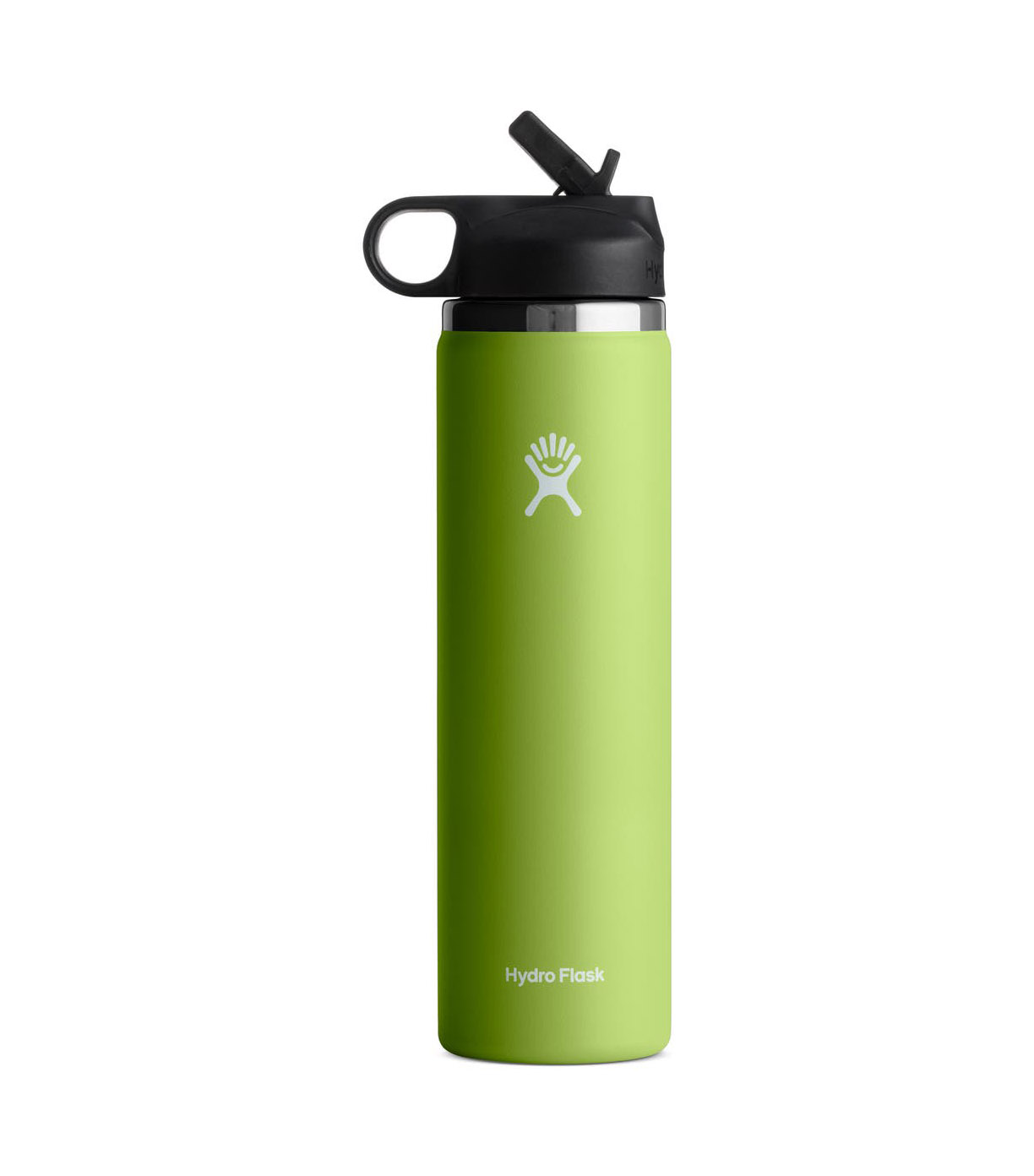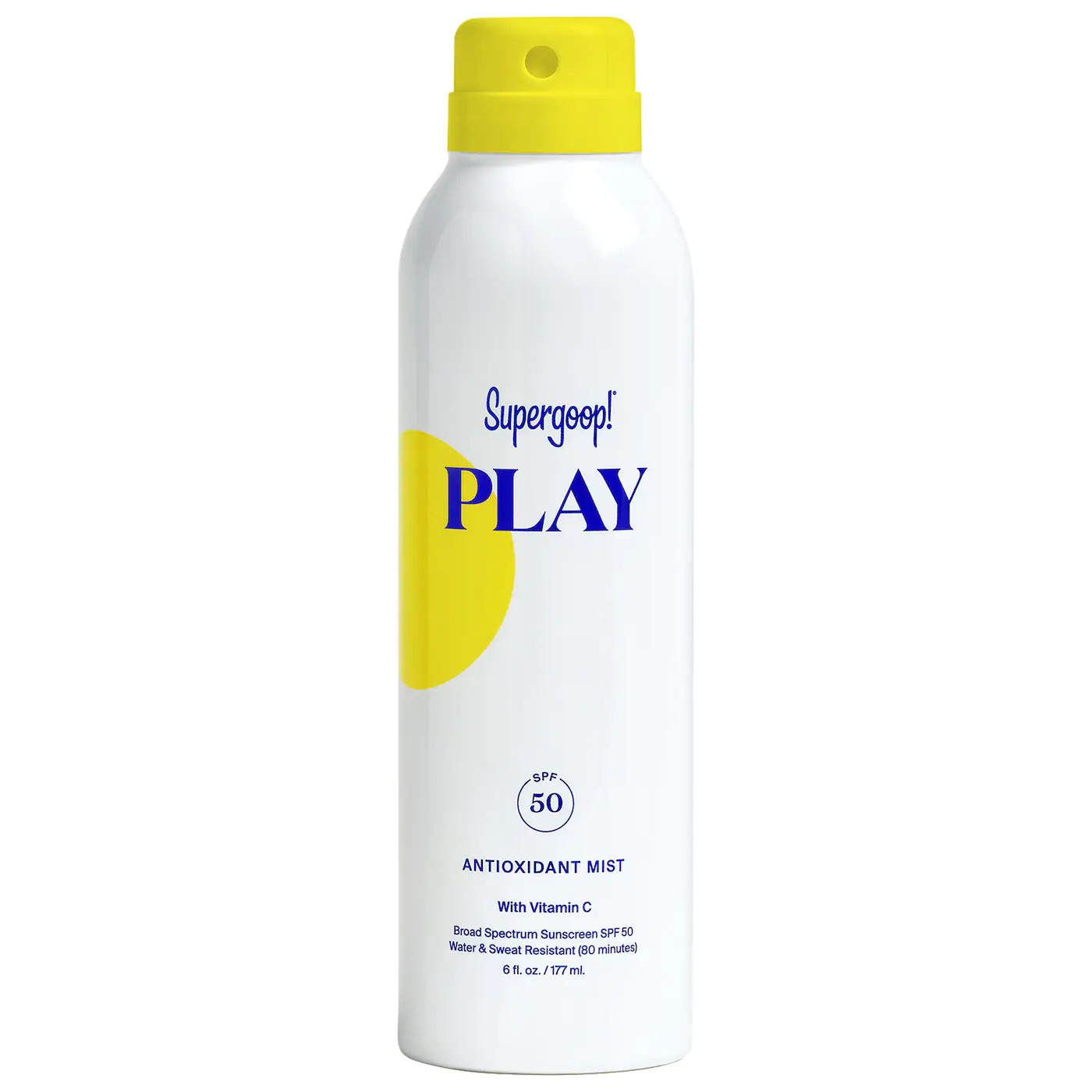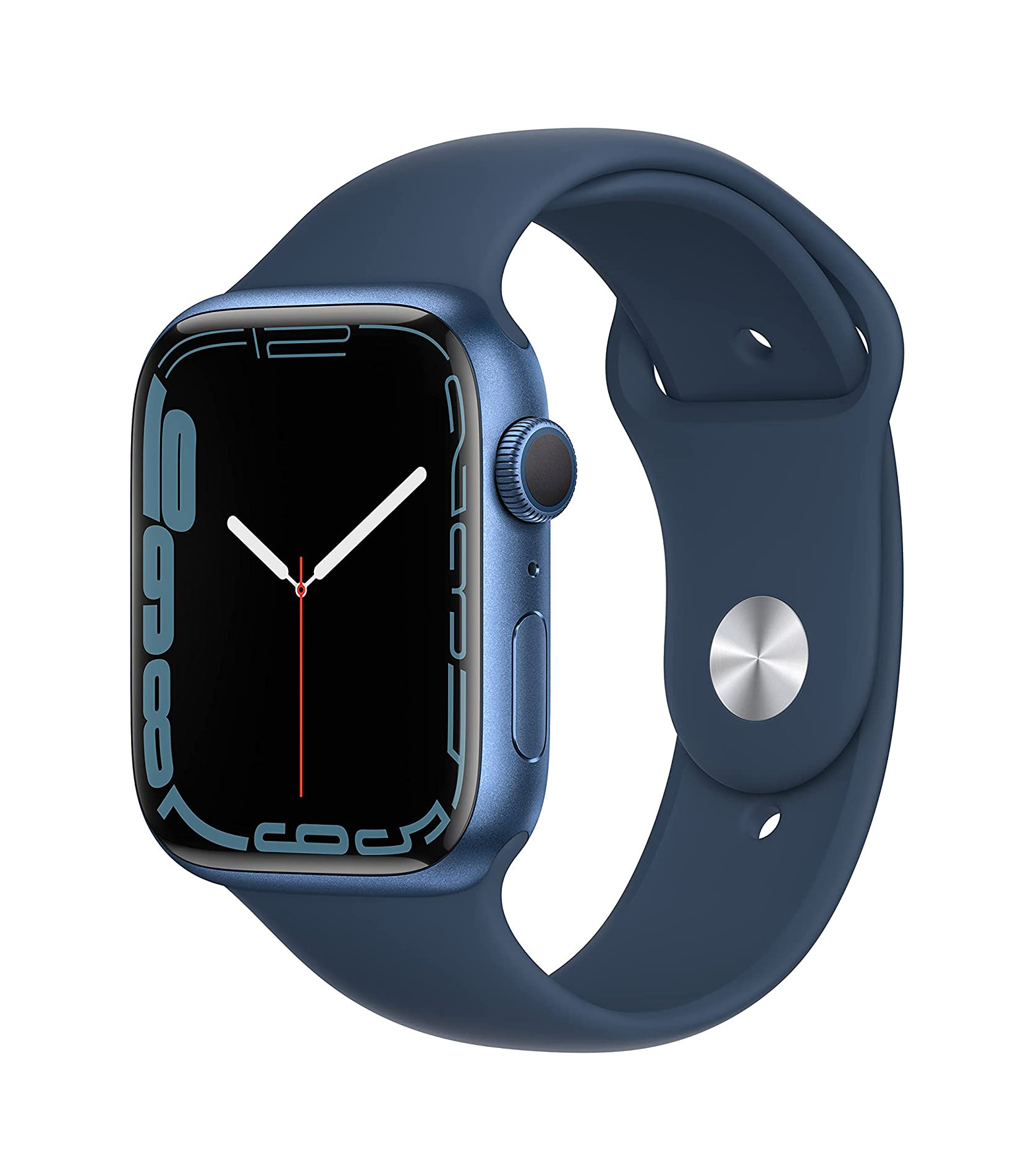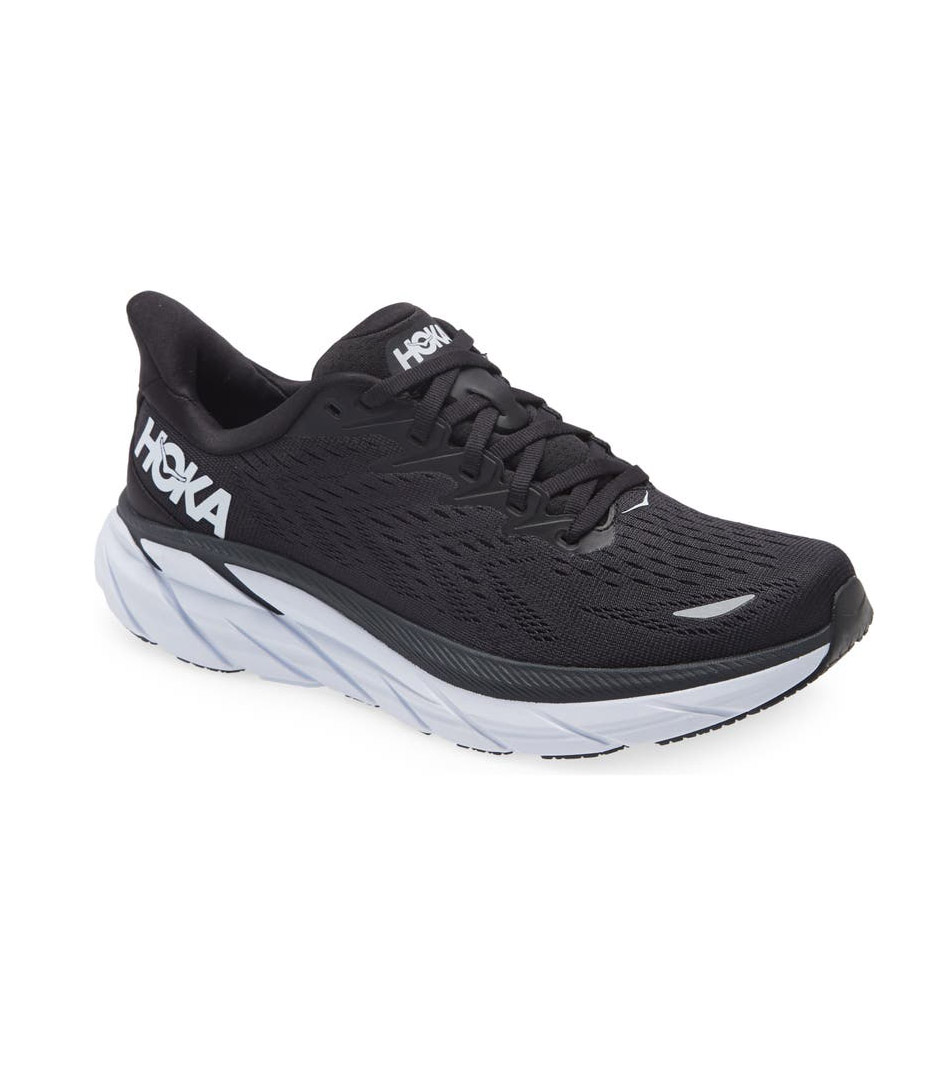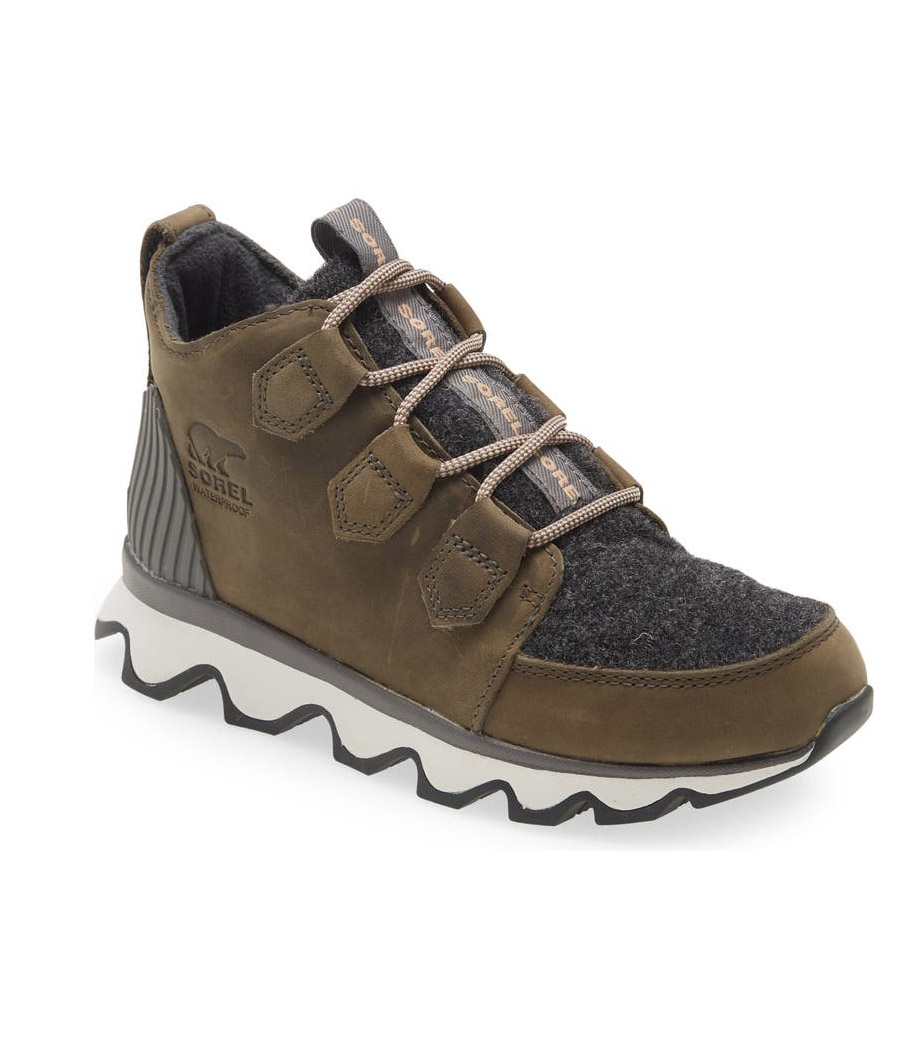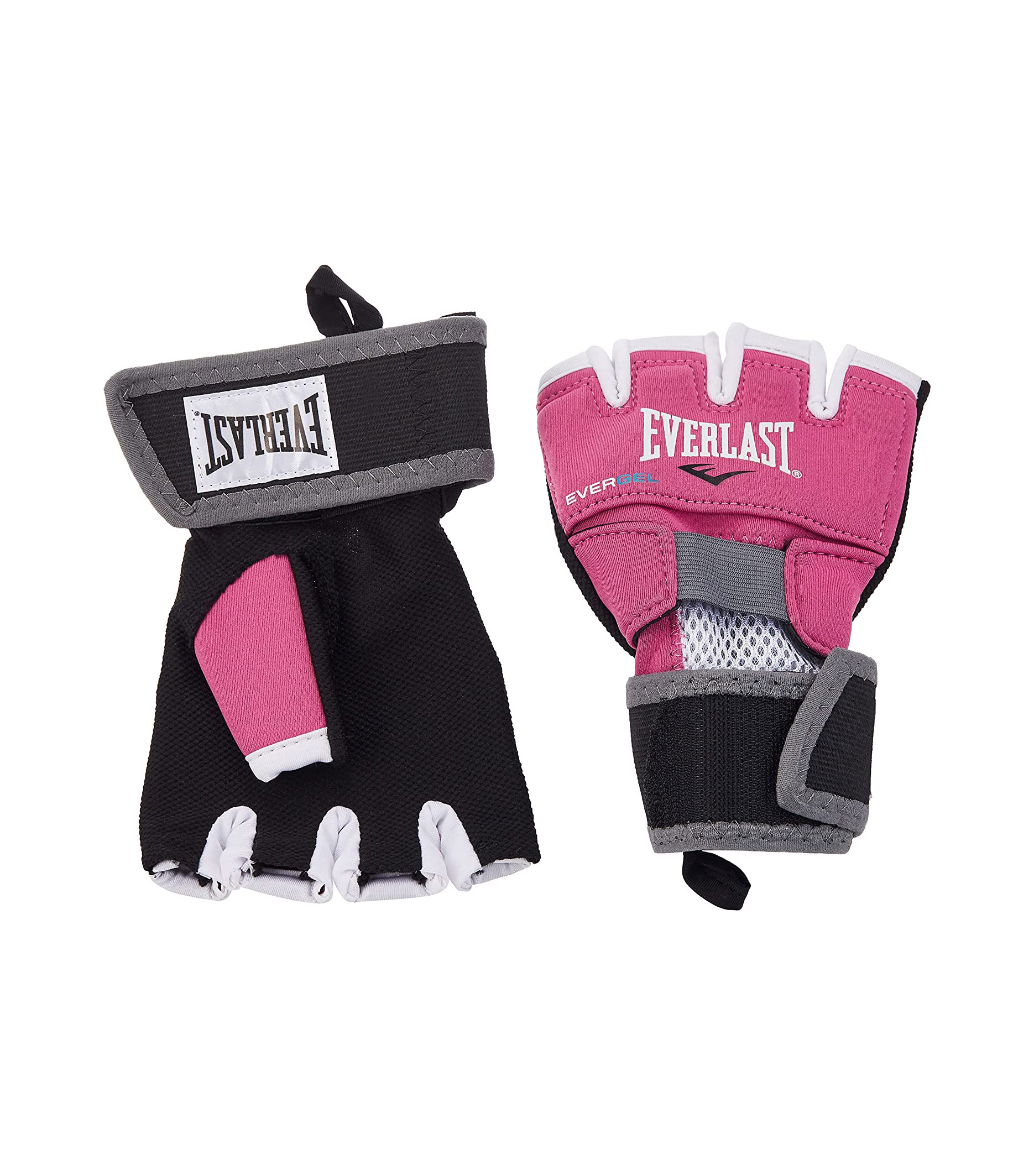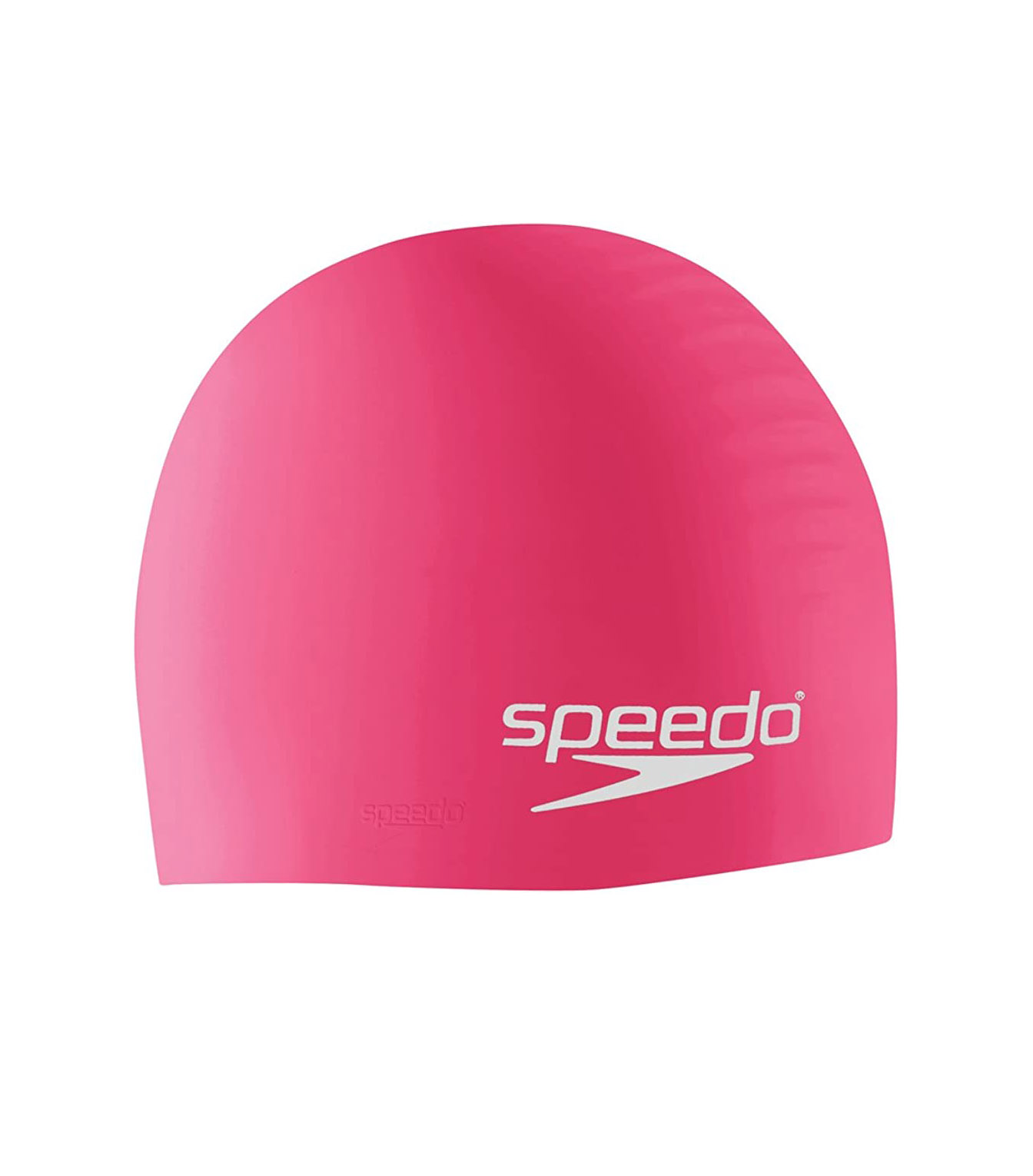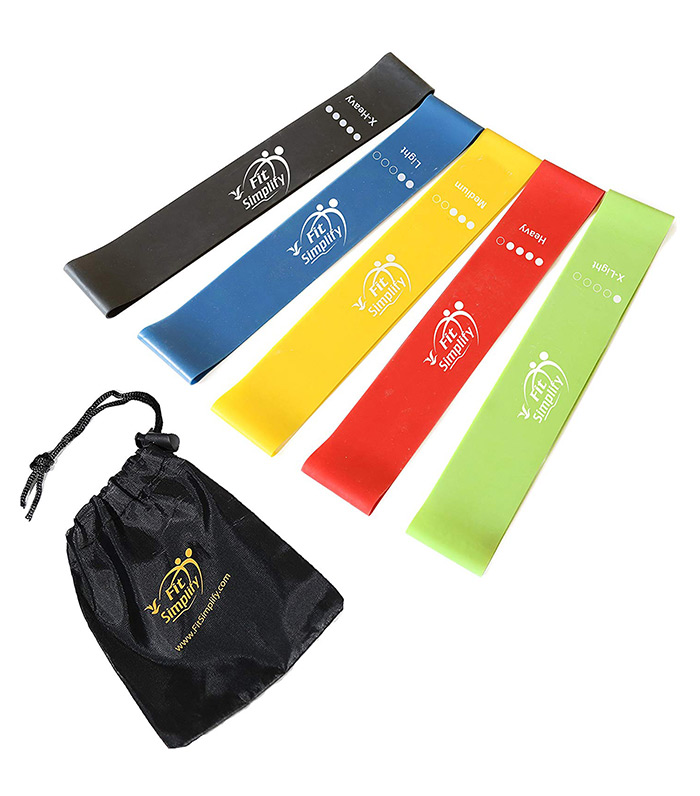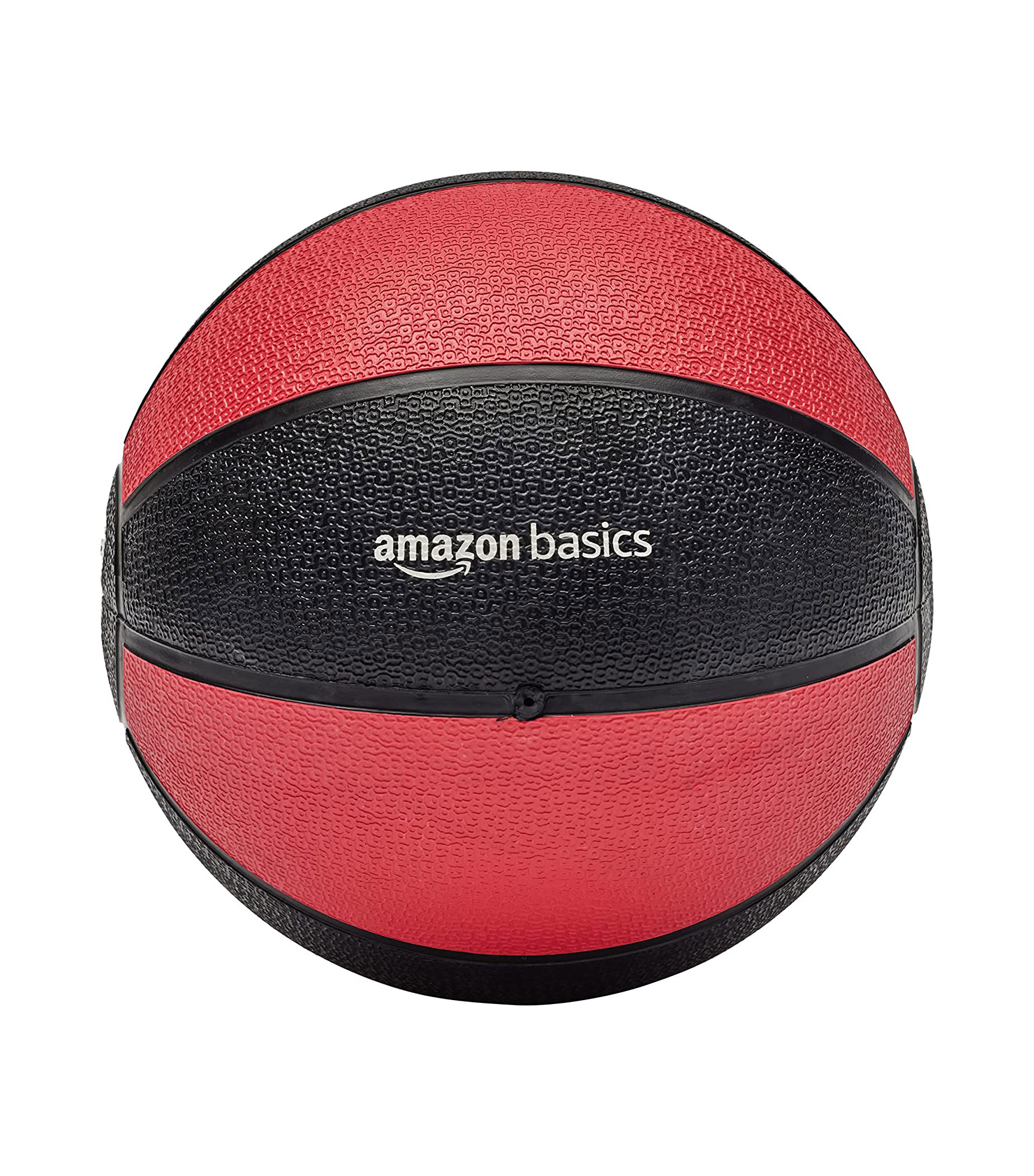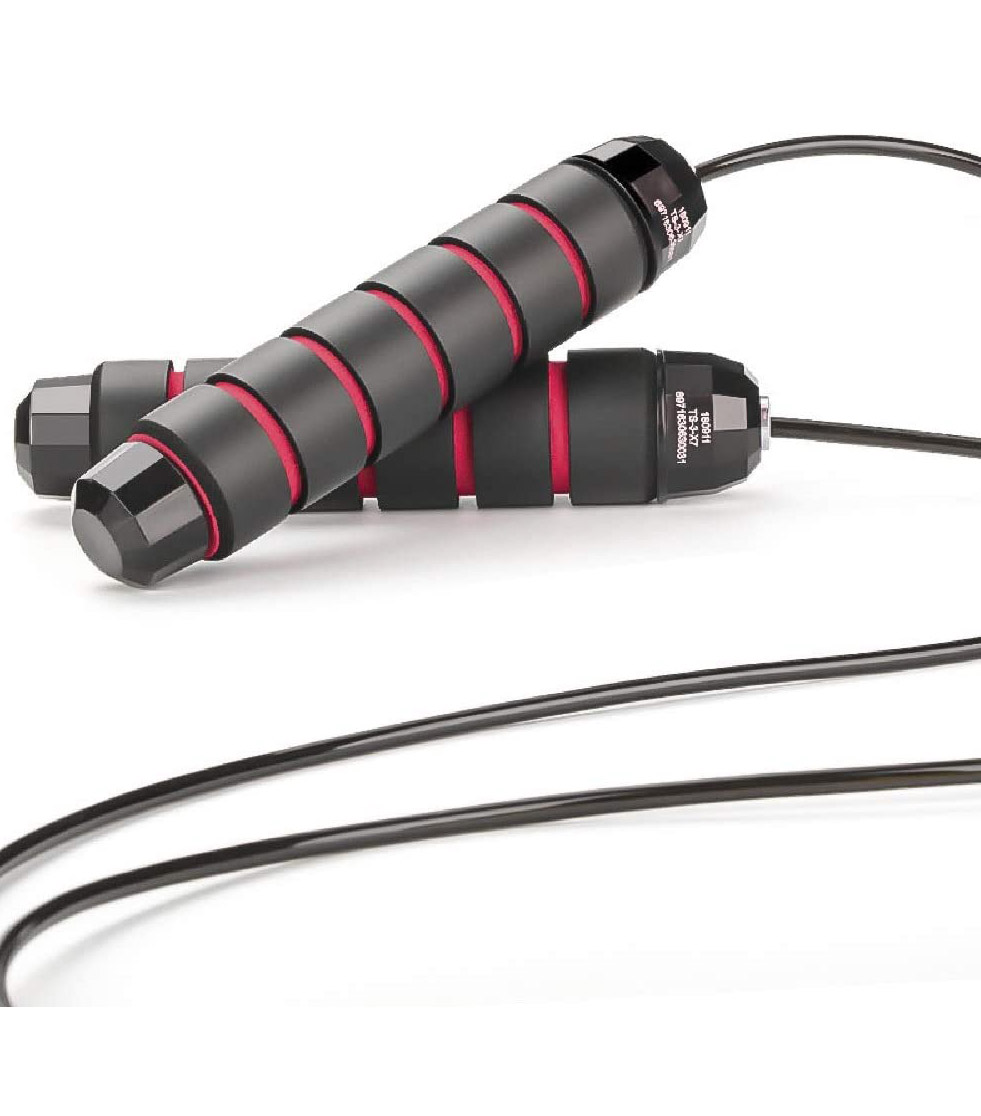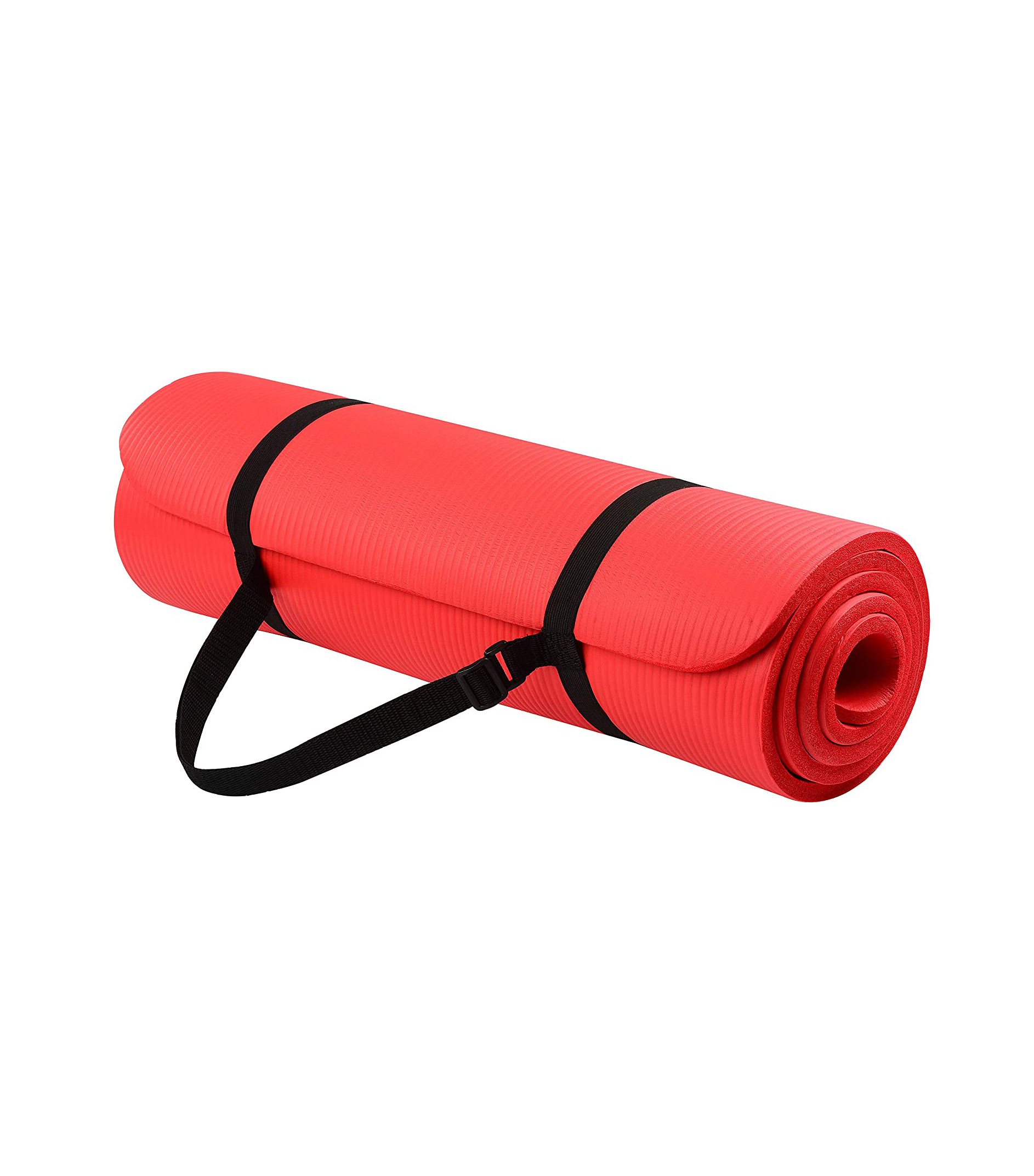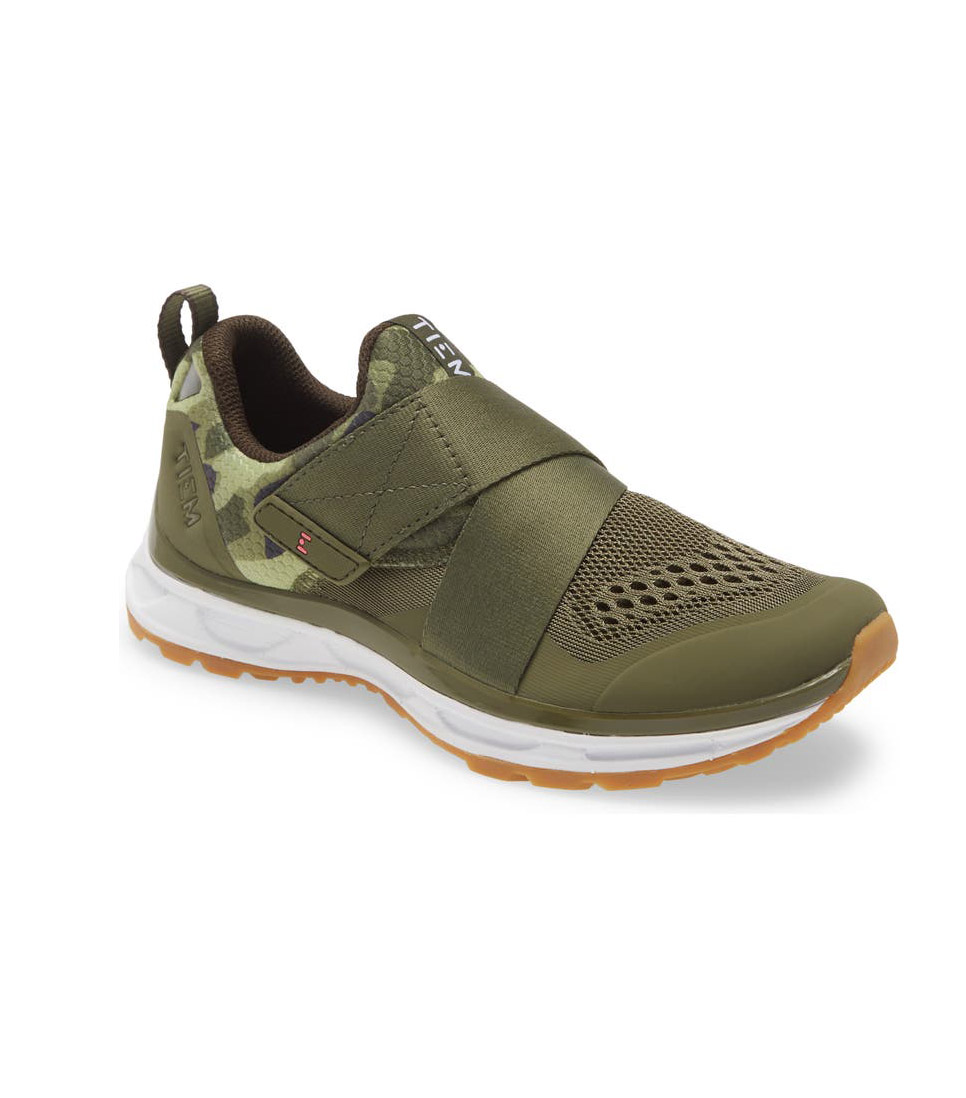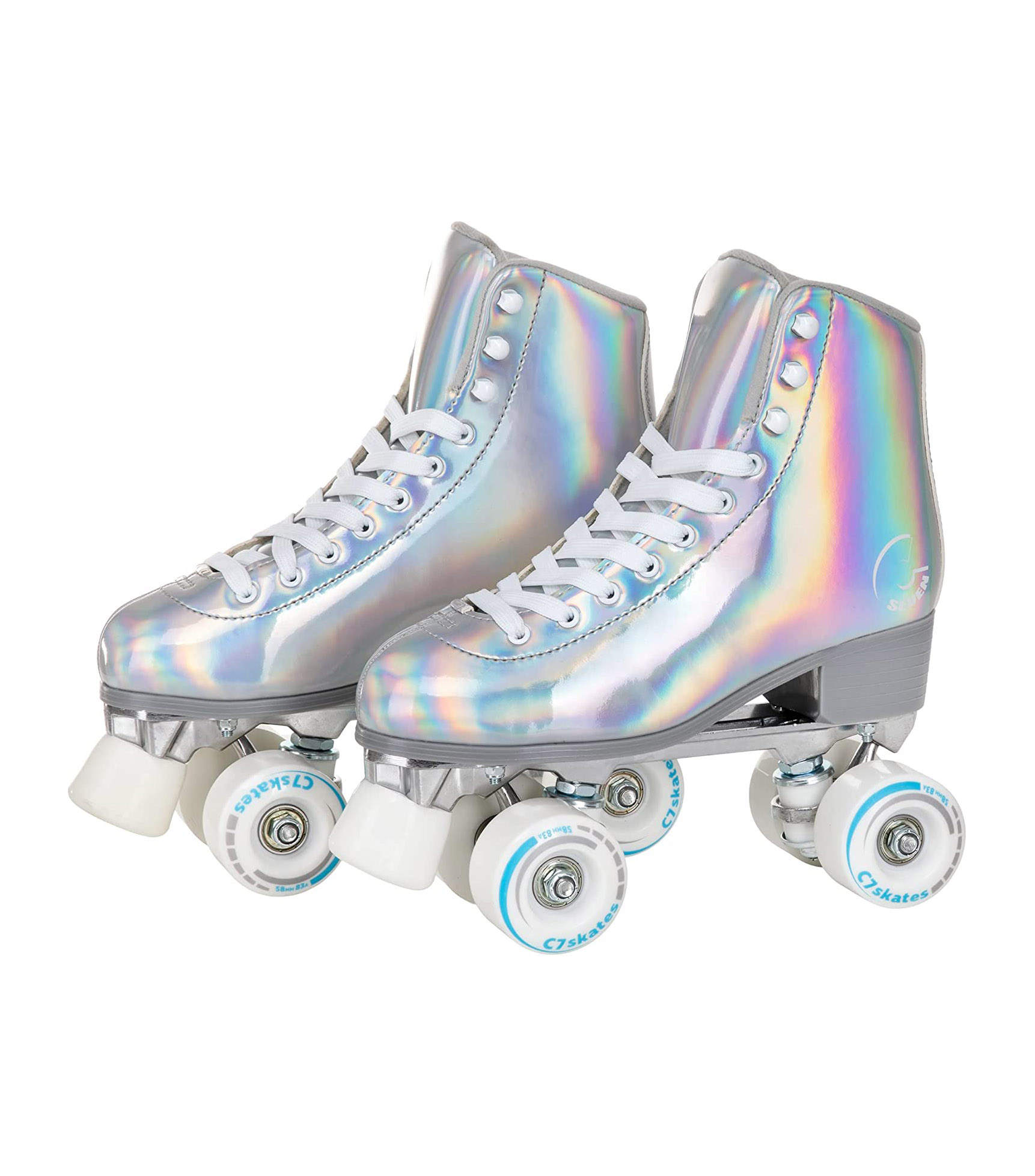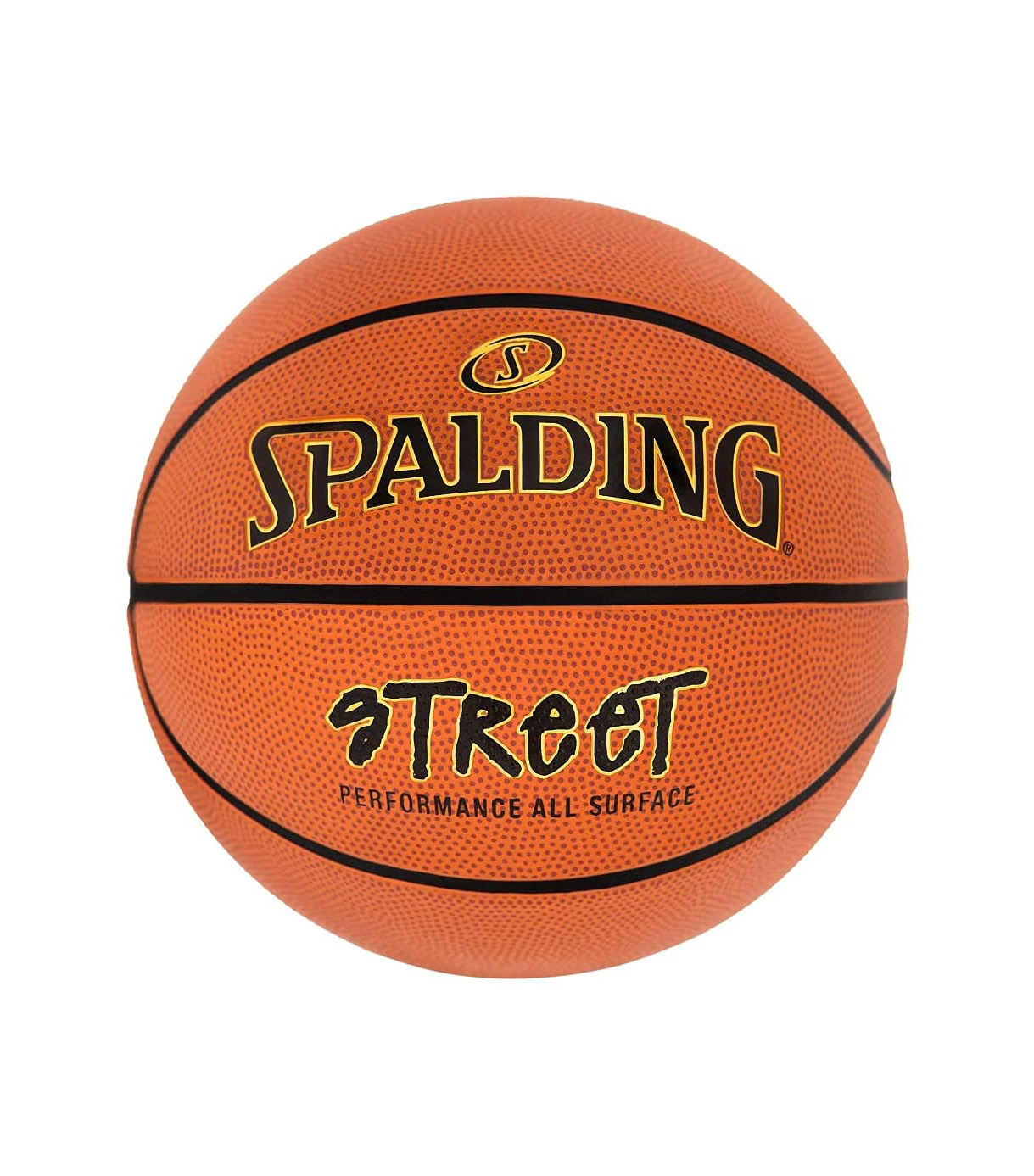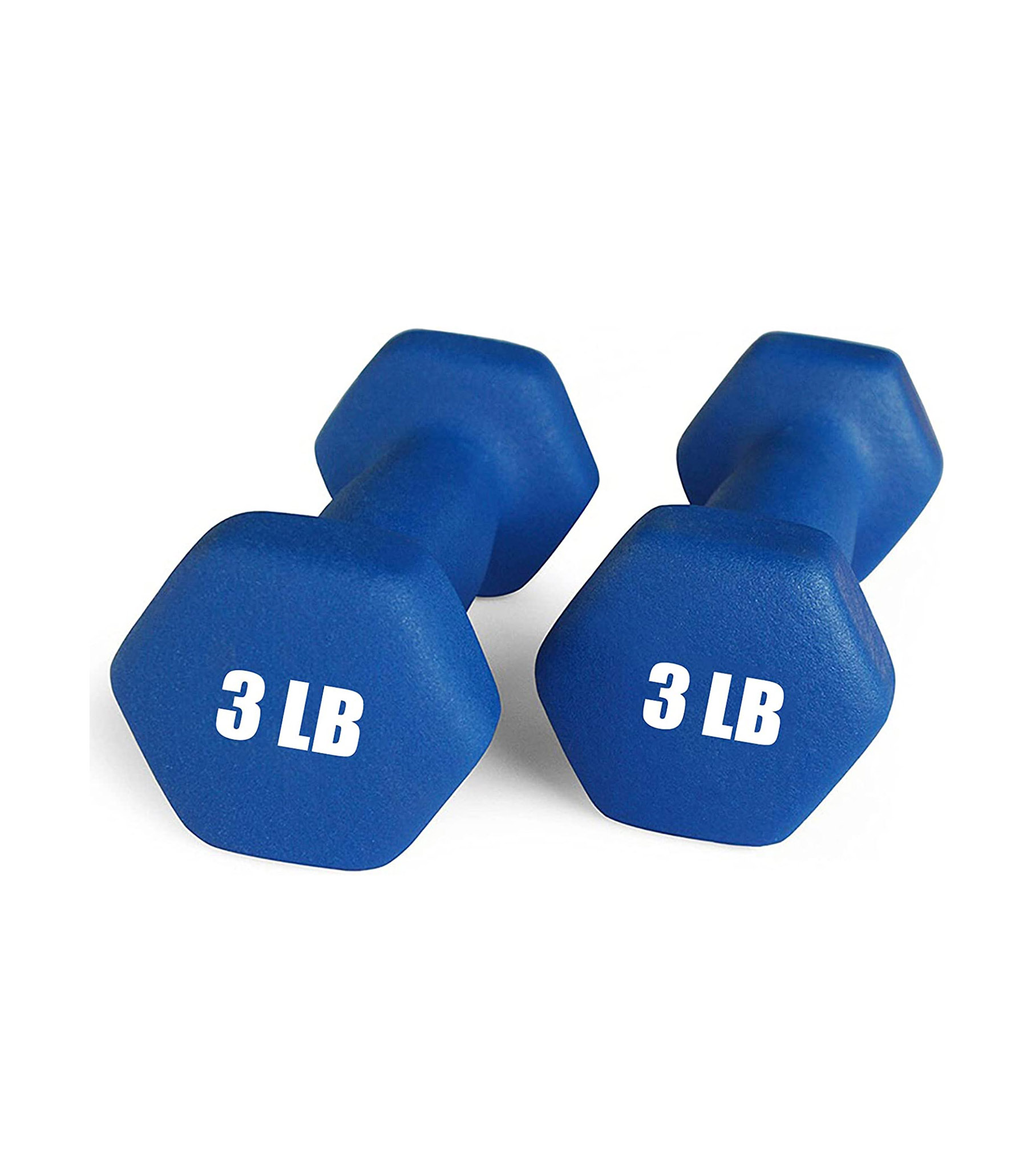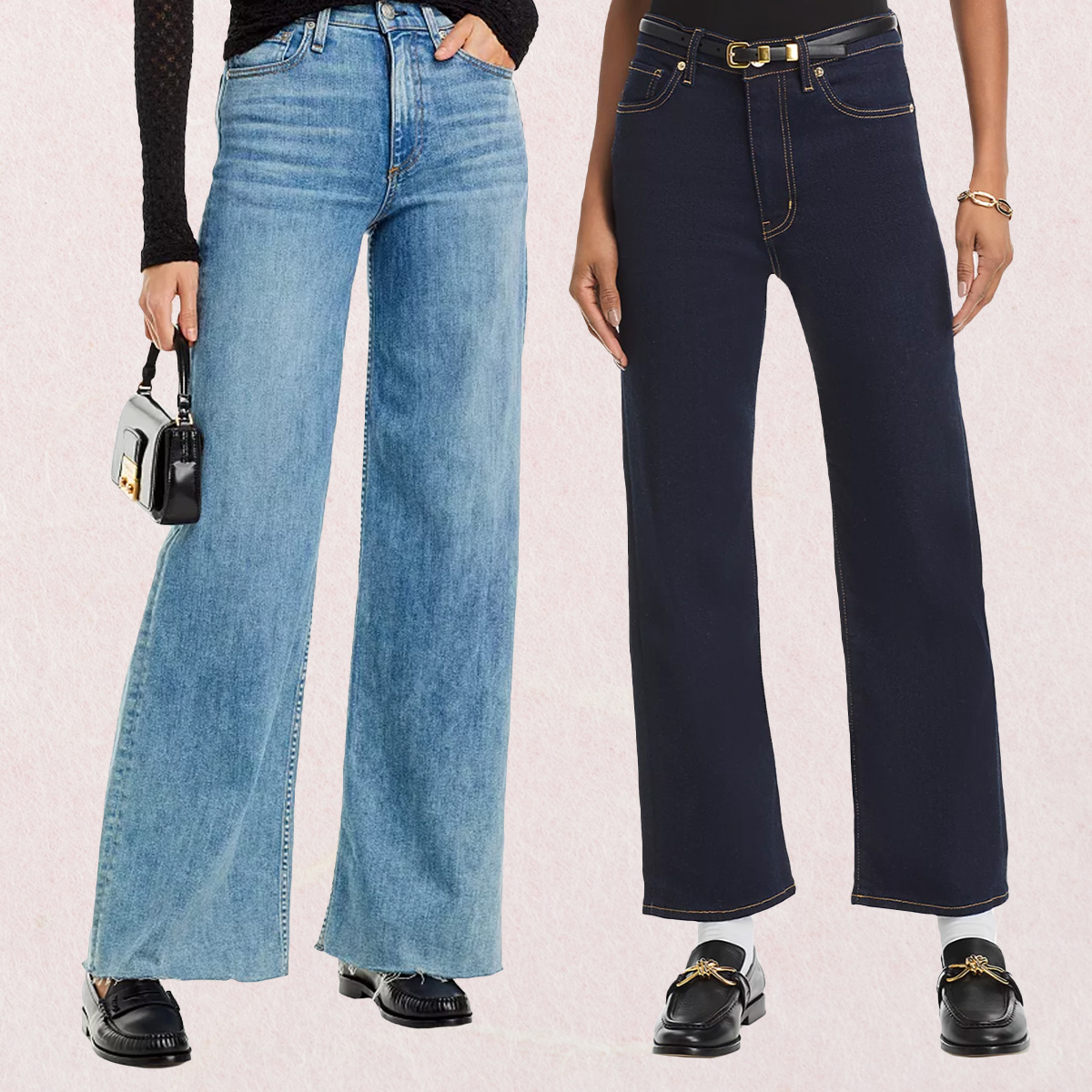This Is the Trick to Try If You Have No Motivation to Work Out
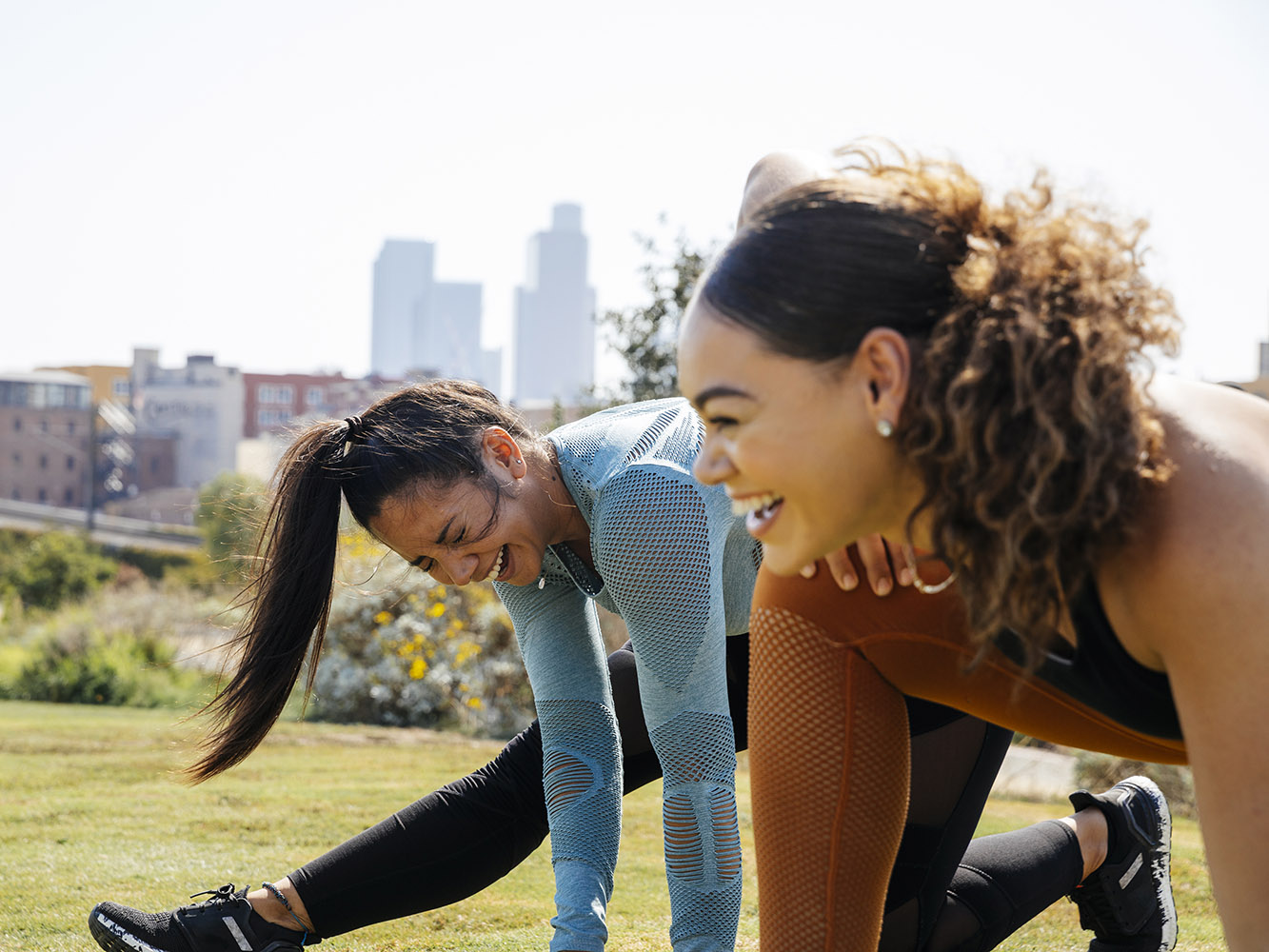
If you've found yourself in a workout rut lately, want to try something new, or just want to get back into a movement routine, why not look to the great outdoors? No, I'm not talking about extreme outdoor sports. I'm talking about experimenting with outdoor activities that might help you mix things up a bit instead of your usual gym routine or indoor fitness class.
In fact, you can use where you work out to your advantage—and being outdoors has its benefits. "There are so many benefits, but the biggest benefit to working out outdoors is that you're boosting your mood by killing two birds with one stone," says Kimmie Prokurat, lead trainer at P.volve studio. "Everyone knows that working out is a surefire way to elevate your mood (thanks to Elle Woods), but when you combine that with a quick dose of vitamin D from exposing yourself to sunshine, you're doubling down on the good vibes. And those good vibes can even carry through to the next day. Exercise helps delay sleep onset (the time it takes to fall asleep), and vitamin D helps melatonin production, which leads to a deeper sleep and improved mood. Basically, working out outdoors is a recipe for short-term and long-term health."
Other pros of outdoor workouts are that they're often free and accessible and they can be used as a social outing, according to FitOn trainer Sydney Belina. Plus, you might even burn more calories outdoors. "When you exercise outdoors, your body has to work harder to acclimate to temperature," Belina says. "Because your body is working harder to acclimate, this also means you have an opportunity to burn more calories in the process. Additionally, the terrain allows for variation and challenge on your body. If you live in an area with more hills or rocks to climb, it challenges your strength and flexibility in a unique way."
Melissa Rodriguez, a fitness expert on the Mindbody and ClassPass Wellness Council, adds that being outdoors might also "trick" your mind into really hustling. "Some studies have also shown that when people exercise outdoors, they sometimes work out harder," she explains. "Due to the mood-boosting effects of the outdoors, when you exercise outdoors, your rate of perceived exertion (RPE) may be lower than it would be for the same workout done indoors at home or the gym."
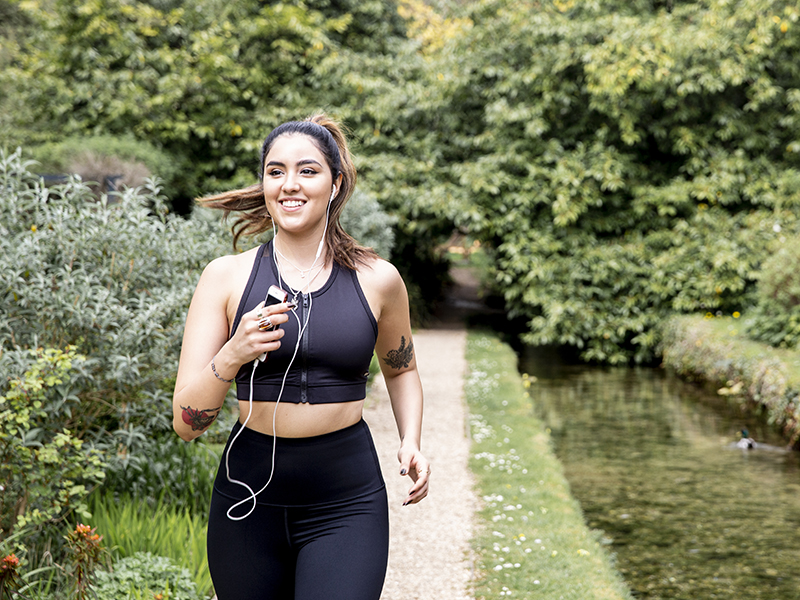
That all sounds good, right? But before you head outdoors for you next workout, there are a couple of things to keep in mind since exercising outside is obviously a bit different from working out inside. First, you have to consider the weather. "As great as the sun can be, it can also be harsh, says Sid Baptista, running coach and founder of PYNRS Performance Streetwear. "Depending on your exercise, make sure that you consider having to get back. Everyone has gotten lost in the scenery during a run and not thought about having to run back," Baptista says. Wear breathable and sweat-wicking clothing that can prevent overheating, too.
Even if it's cold, you'll want to think about overheating. "If it's cold, layer up with sweat-wicking clothing, but not too much," Prokurat says. "It might shock people, but you can easily overheat even when it's freezing cold outside. Think about dressing as if it's 10° warmer than the weatherman predicts, and be sure to layer in a way that you can easily take things off if you need to. Always bring something to insulate your hands, head, and feet as these areas release a lot of heat."
And you'll want to make sure your clothing is bright and has some visibility—this is especially important if you're planning to work out in a busy area with cars.
You'll also want to choose the correct footwear. "It's also key to protect your feet with the right shoes based on the workout modality of your choice. For example, wear a good running shoe if you plan to get your miles in," says Deja Riley, Lululemon global ambassador and fitness expert.
And don't forget to hydrate and wear sunscreen whether it's hot or cold outside. "In the summer, I usually drink double the water when I'm outside than I would inside to replenish my body appropriately," Riley adds. "Make sure you also listen to your body and heighten your sense of awareness when you're outdoors. You want to make sure if you're dizzy or not feeling right due to the elements, you can slow down and take a break when you need to."
Now that you're prepped, take a look below at some outdoor workouts to try.
1. Walking
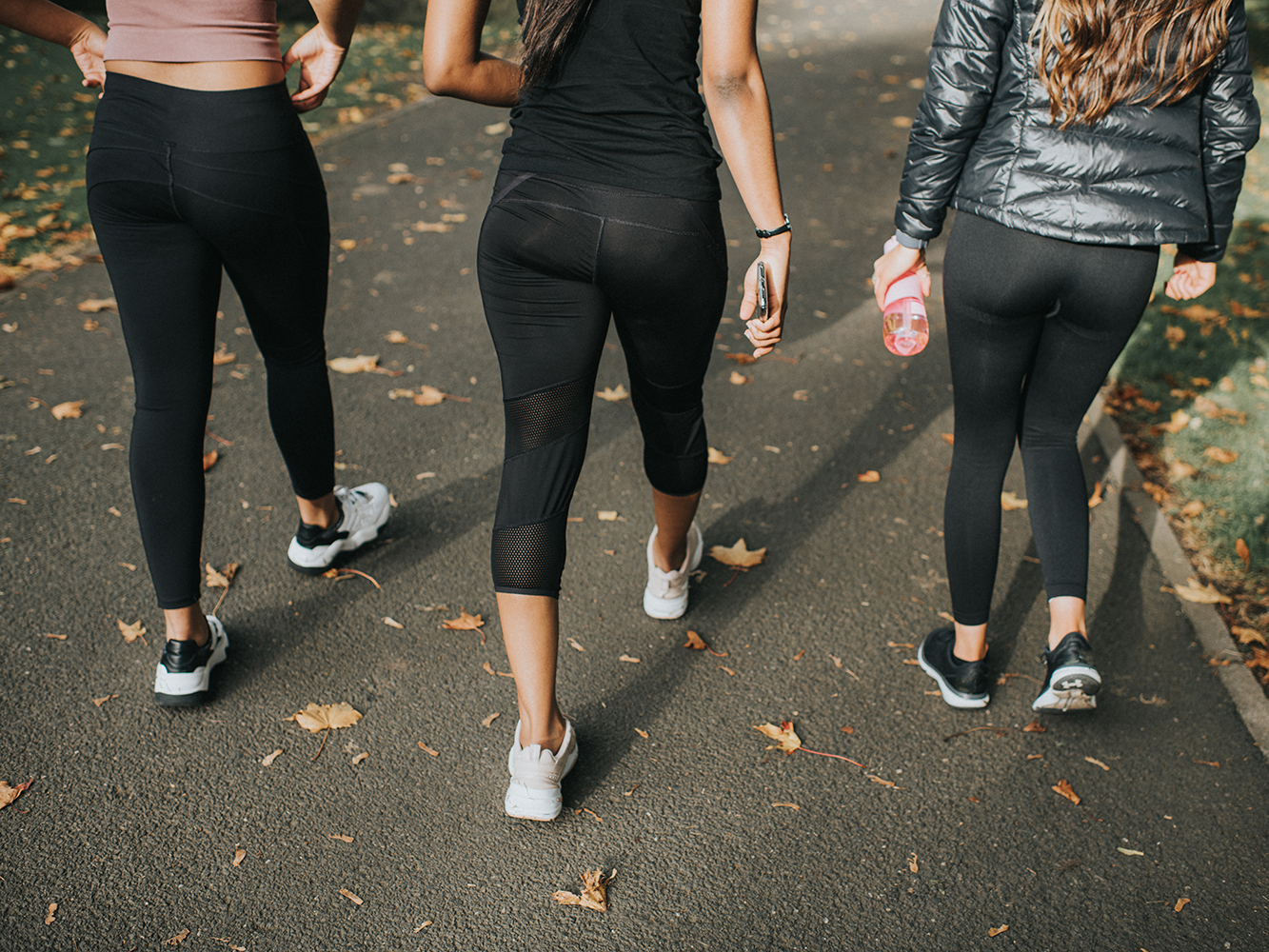
"If you have the gift of being able to walk, then take full advantage of how wonderful walking is for your body," says Belina. "It improves cardiovascular fitness (healthy hearts for the win), strengthens your muscles and bones, and helps ward off strokes, high blood pressure, and heart disease. Lastly, it helps you maintain a healthy body weight. If you download the free app FitOn, you can turn on my walking workout outside if you need some variation as well."
2. Running
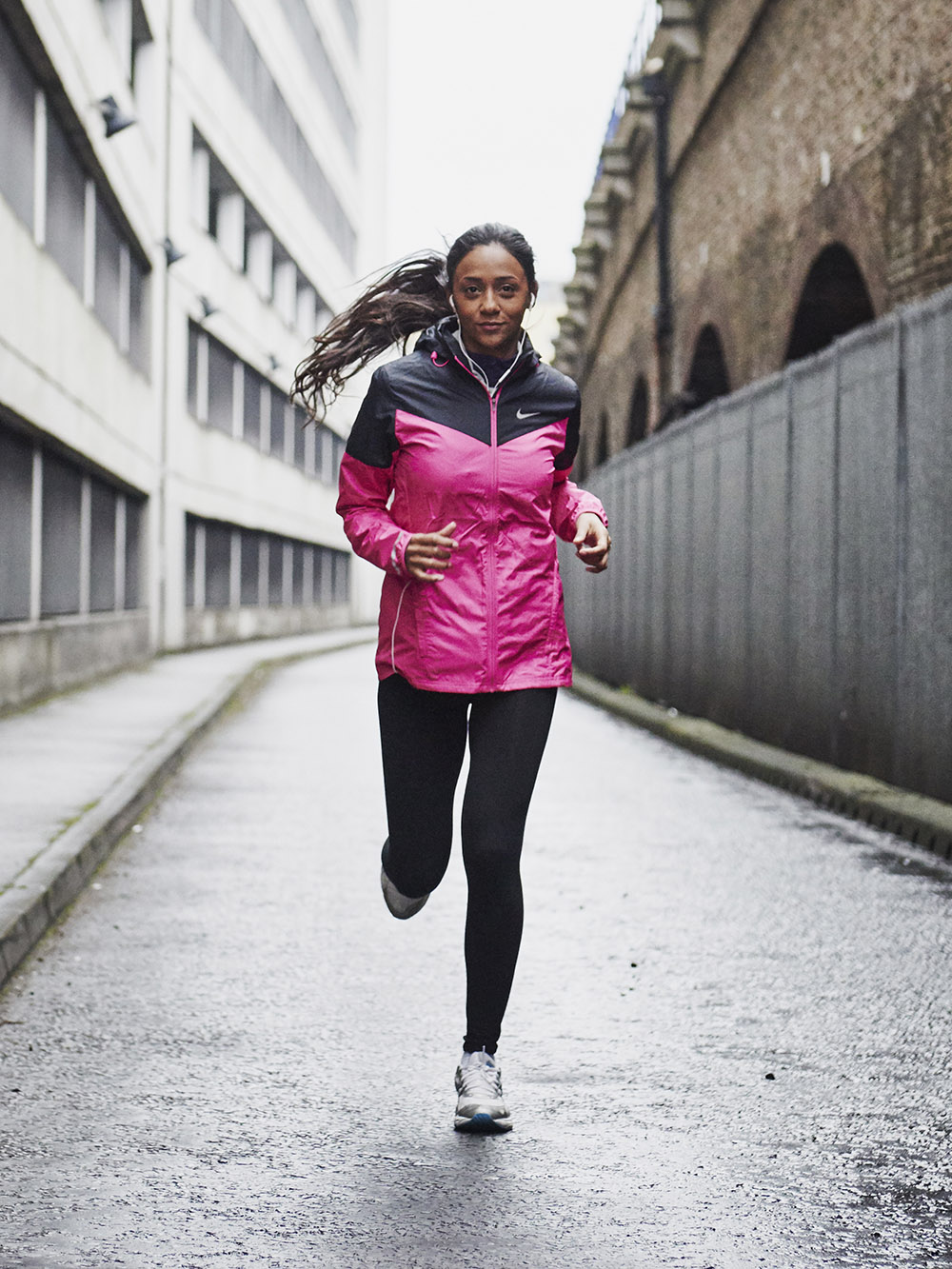
"My go-to outdoor workout is a run," Baptista says. "There is nothing like just throwing on some running shoes and exploring different environments. No matter where you are (woods, city, beach, farmland), it's always a good place to explore on a run. Additionally, running is a great way to improve cardiovascular fitness, burn calories, and increase bone density."
Riley advises that since it's a high-impact workout, you'll want to start slow and be careful with your joints. And Prokurat adds that the exercise is just as good for your mind as it is for your body. "If you're looking for a workout that can push you past your preconceived limits and build your confidence in a real way, try running," she says. "There's nothing better than proving to yourself that you're wildly capable of doing tough things, and this is such an accessible way to tap into that mental space. The barrier for entry is low. All you really need to begin is to get yourself a pair of good shoes and take off."
3. Hiking
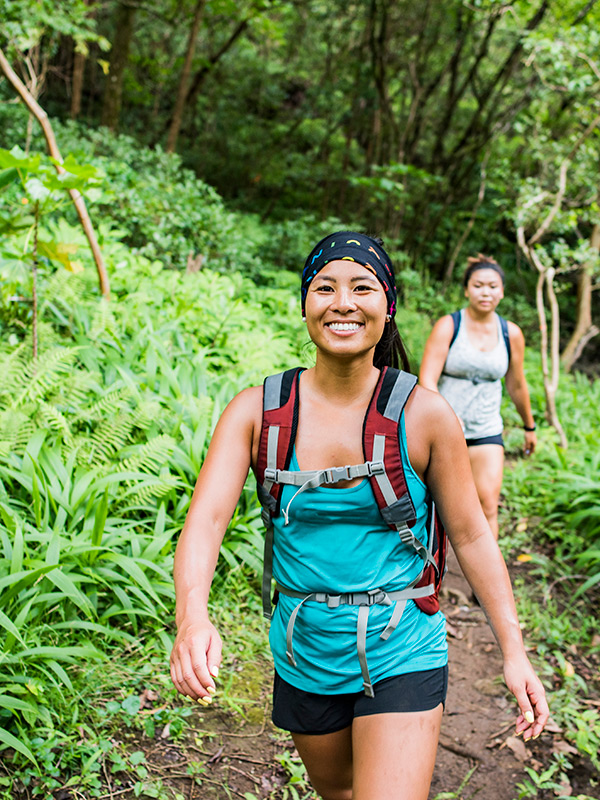
"Hiking outdoors boosts your mood, cardiovascular health, lower-body muscular endurance, balance, and ankle stability," Rodriguez says. "With hiking, you are likely to encounter changes in terrain, incline, and elements characteristic of most trails. That's a workout for your ankles, calves, and feet. And it's why hiking boots may seem a little clunky in order to give your feet the support they need on the trails."
4. Boxing
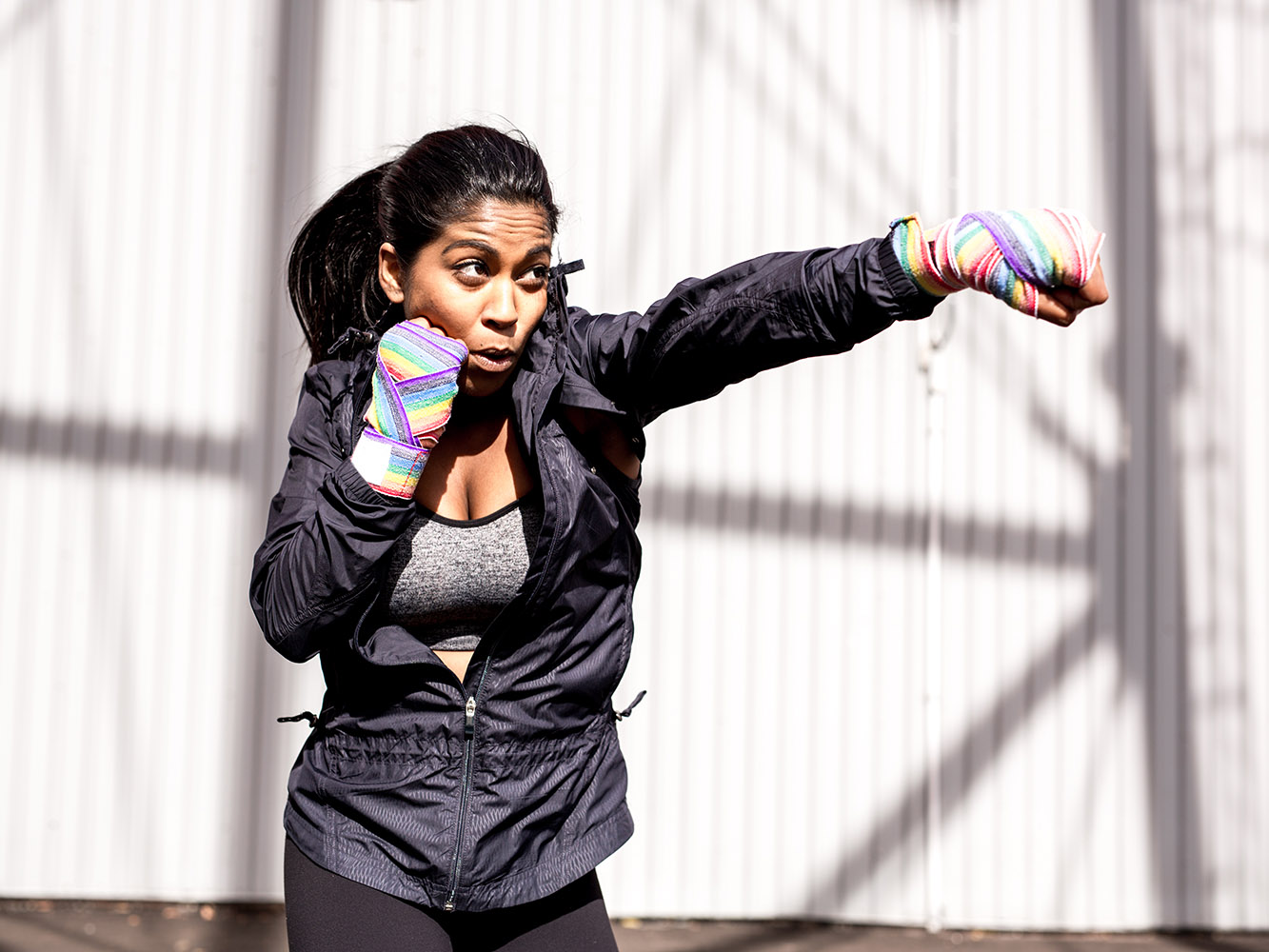
"This is really fun to do outdoors. I love doing this with my friends so they can hold mitts for me," Riley says. "It takes it outside the gym, makes it feel more fun, and helps me loosen up. It also boosts full-body strength—the common misconception is that it's an upper-body workout, but you're also using your core and your leg strength for footwork and putting the power behind your punches. This sport has really helped me build my confidence as well as mental and physical strength. It forces you to focus and remain present."
5. Swimming
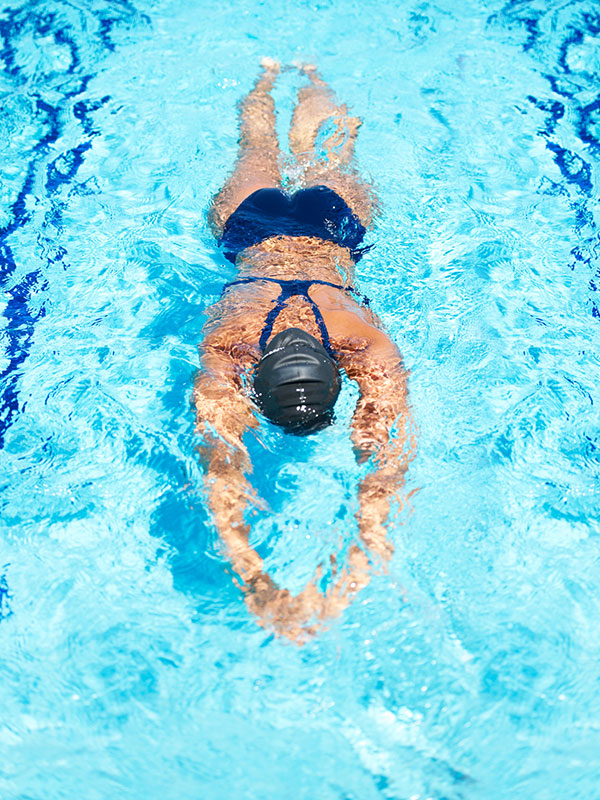
"Maybe you have a pool, a lake, or an ocean close by where you live. If so, take full advantage of this activity," Belina says. "Swimming helps build endurance, tones your muscles, and build strength. It is a full-body resistance workout, and it de-stresses your beautiful body. It's a total body workout that is low impact, and it contributes to better sleep. Time to go swimming!"
The cardiovascular workout is also great if you have joint issues, Baptista adds.
6. Yoga
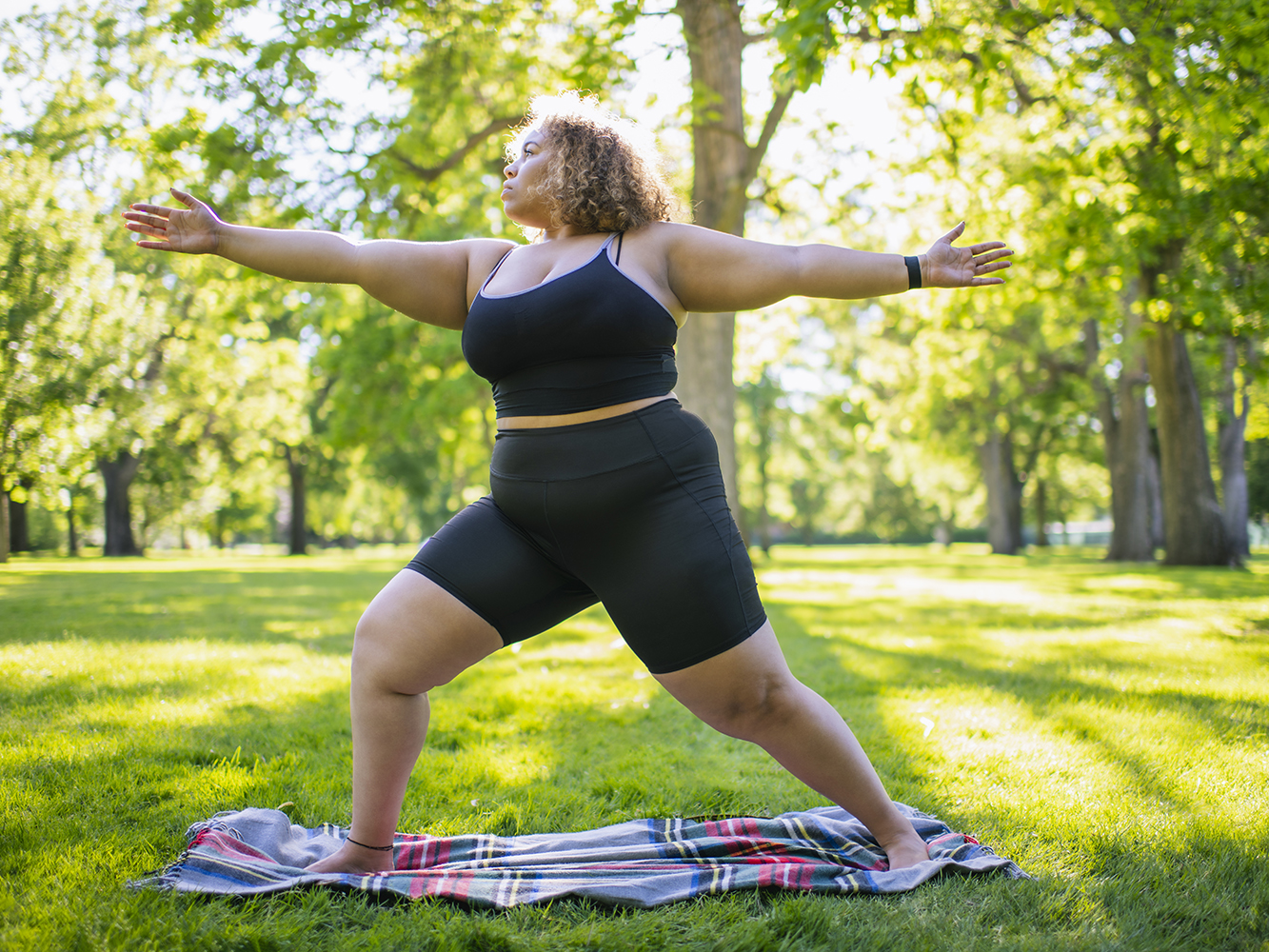
"Yoga is incredible for helping you connect to your breath and relieve tension in your body," Prokurat says. "Apply the yogic principles of syncing movement to breath and relaxing your nervous system to benefit all of your other activities. Additionally, if you ever feel stiff throughout the day, it's most likely because you've been sitting in the same position for an extended period of time. In moments like those, remember that 'motion is lotion.' Stretching and oiling up your joints through yoga is an easy way to quell that stuck feeling."
7. Bodyweight Exercises
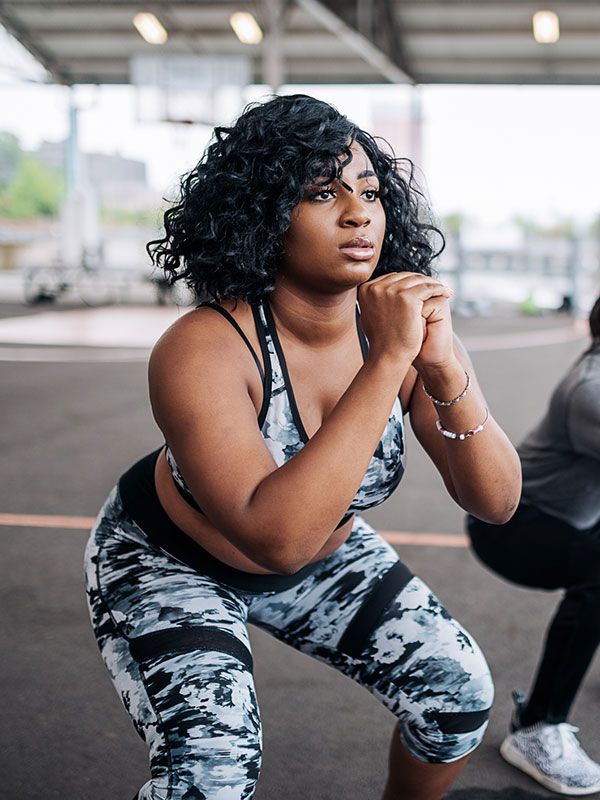
"Outdoor workouts don't have to be limited to traditional cardio activities," Rodriguez says. "You can also build muscle and improve dynamic flexibility during your outdoor workouts. Bodyweight exercises like push-ups, body rows, pull-ups, squats, lunges, planks, single-leg squats, and deadlifts all done outdoors can help build muscle and the core for most people. For advanced athletes, these bodyweight exercises are a good warm up or active recovery exercises during off days."
8. Power Training
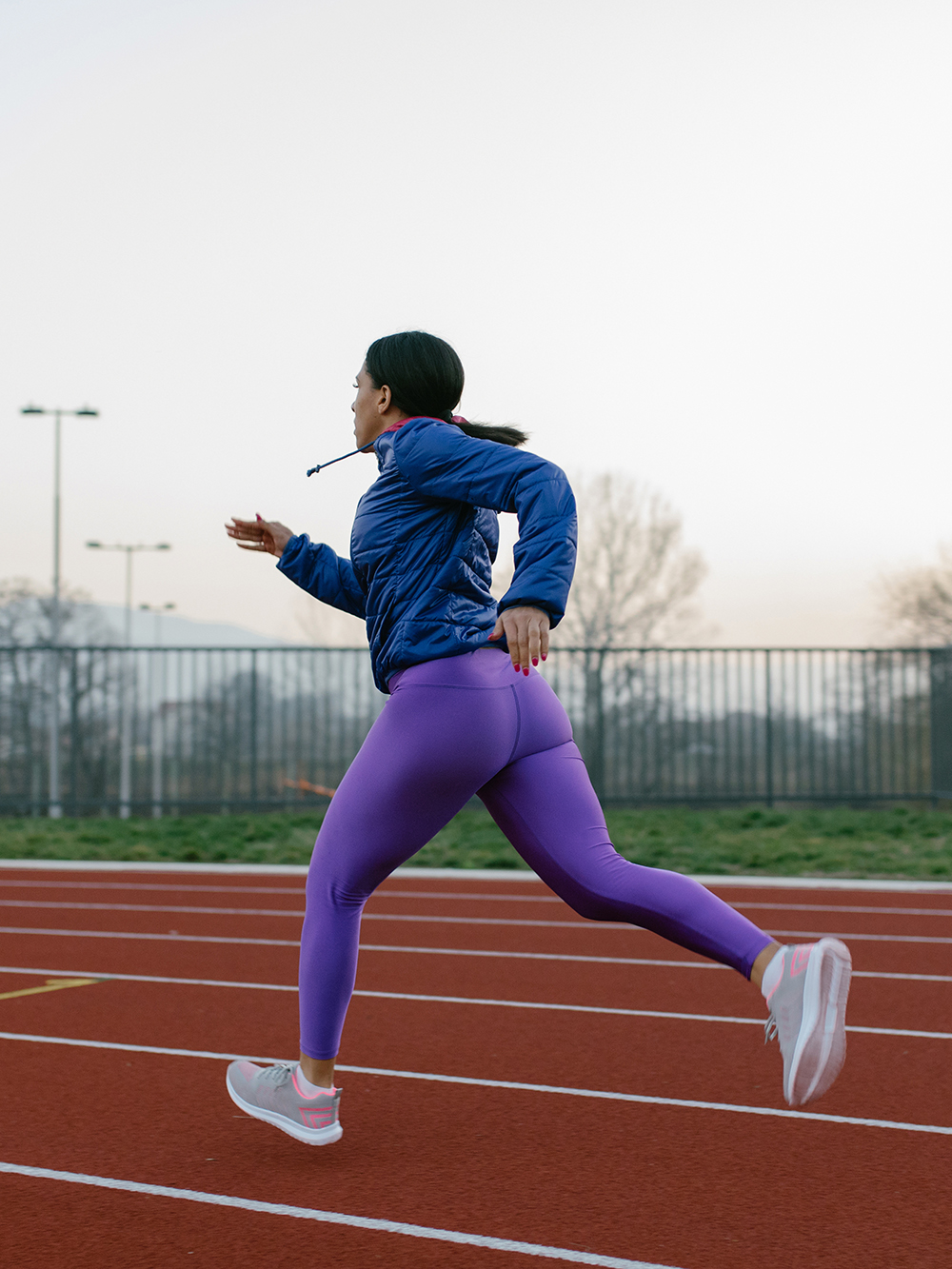
What exactly is power training? Prokurat says it's plyometric work like box jumps, medicine-ball slams, and sprints. "People actually lose power (speed) much faster than they lose strength," she explains. "This is an issue because you need to be quick to keep yourself safe. A great example of how this applies to daily life is dodging a car while you're crossing the street. You definitely want to be reactive, agile, and powerful enough to quickly get out of that car's way. After incorporating power training, you'll notice that your body feels less tense and strong—this happens because you're bringing the collagen structure in your fascia to a healthy, pliable state."
9. Jumping Rope
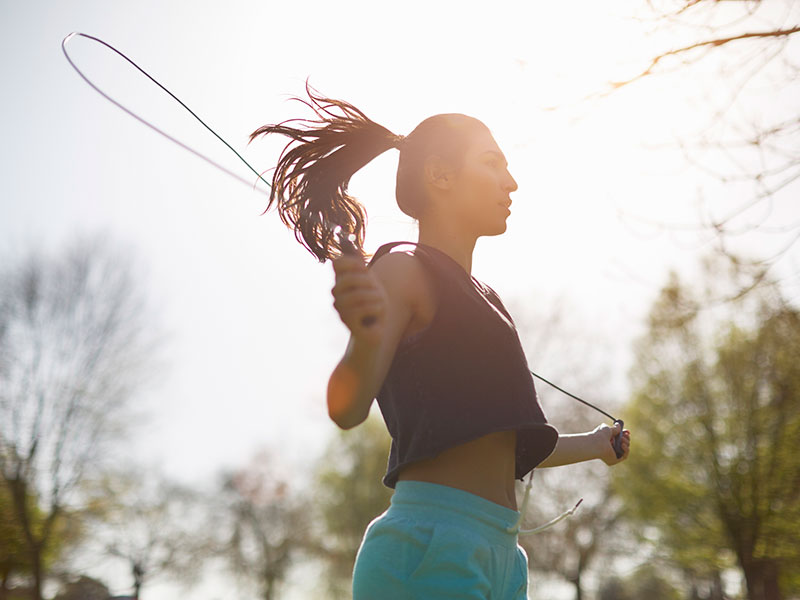
"Jumping rope is a great outdoor workout that can be done pretty much anywhere," Baptista says. "You can burn 200 to 300 calories in about 15 minutes, so it's great for a quick sweat. Jumping rope improves heart health, increases bone density, and increases agility among other benefits."
10. Dancing
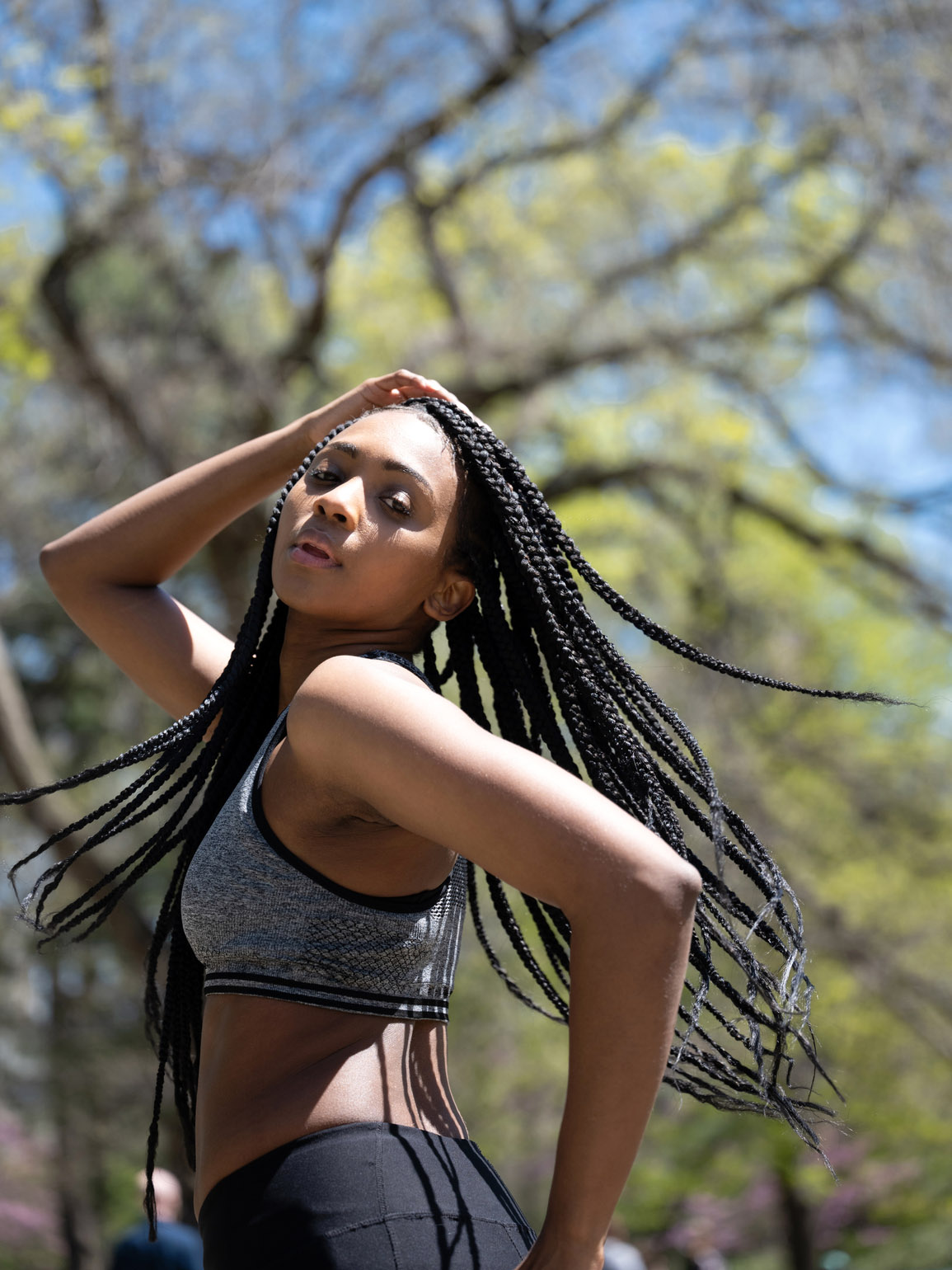
"It's literally my favorite thing to do anywhere. Dance helps you improve your coordination. It's a huge stress reliever and releases all the endorphins and dopamine you need in your body," Riley says. "It also improves flexibility and muscle tone, so you're constantly building up your endurance as well. I dance because dance is my therapy and it brings me joy!"
11. HIIT and Tabata
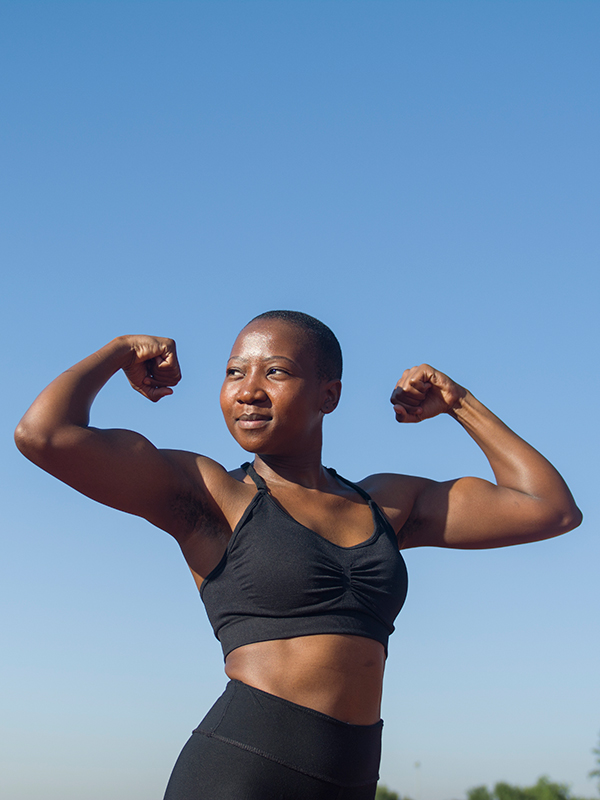
If you're looking for an outdoor HIIT workout, Prokurat recommends this four-minute tabata protocol: Try eight sets of 20 seconds of high knees (beginners) or burpees (intermediate–advanced exercisers) followed by 10 seconds of rest.
12. Biking
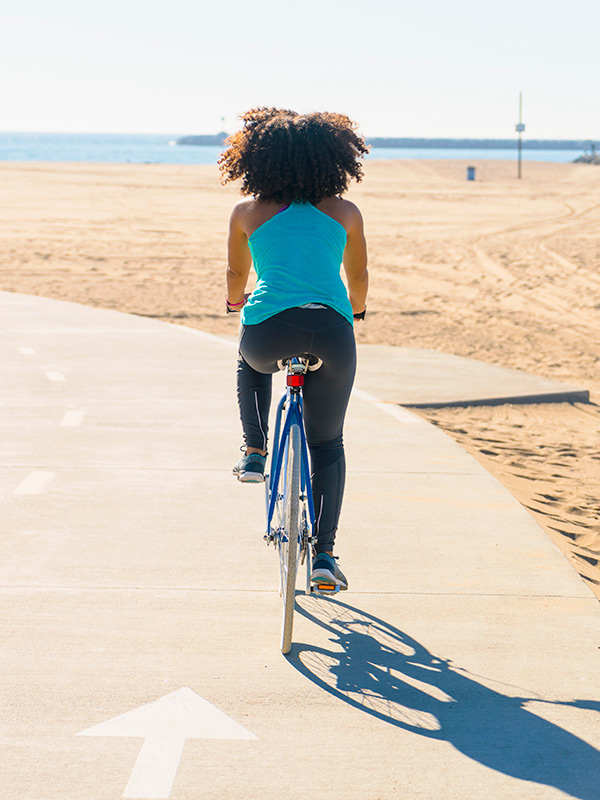
Try this low-impact workout for cardio benefits. "If you have an outdoor bike, don't let it pile up with dust. It's time to take it outdoors and enjoy the spring, summer, and some of the fall months to pedal outdoors," Belina says. "Cycling allows you to improve your posture and coordination, decreases body fat levels, and improves joint mobility. Just like all of the above, it helps with the prevention of diseases."
13. Roller Skating
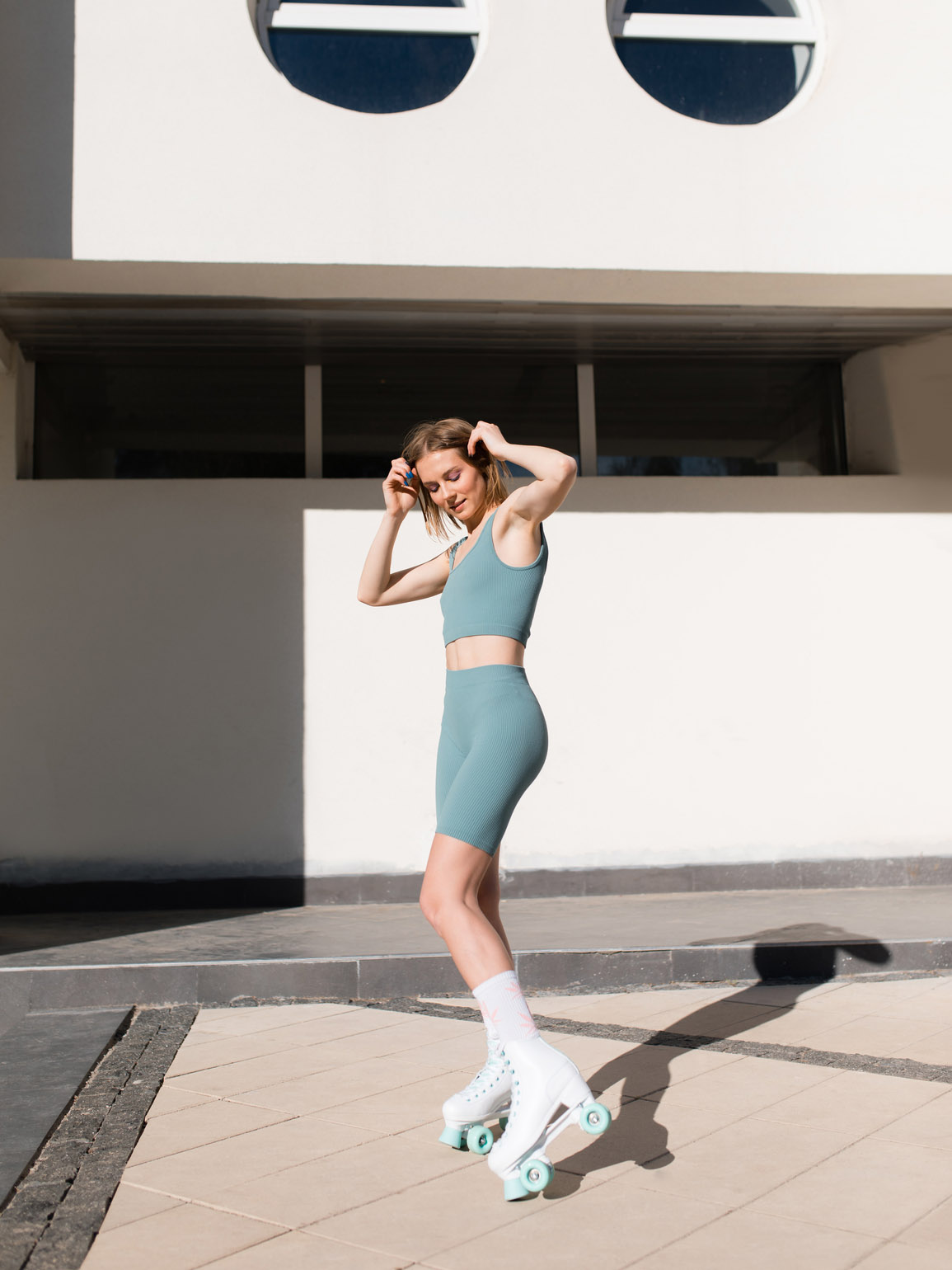
"Another one that doesn't feel like a workout! This one is nostalgic for me because I used to roller skate all the time as a kid," Riley says. "Now, I get to laugh at myself when I fall, and I enjoy roller skating when I'm trying to stay on the beat with my friends. It brings me so much joy. It builds your lower body muscles and works your calves, quads, and glutes—keep in mind this is another great low-impact workout!"
14. Basketball
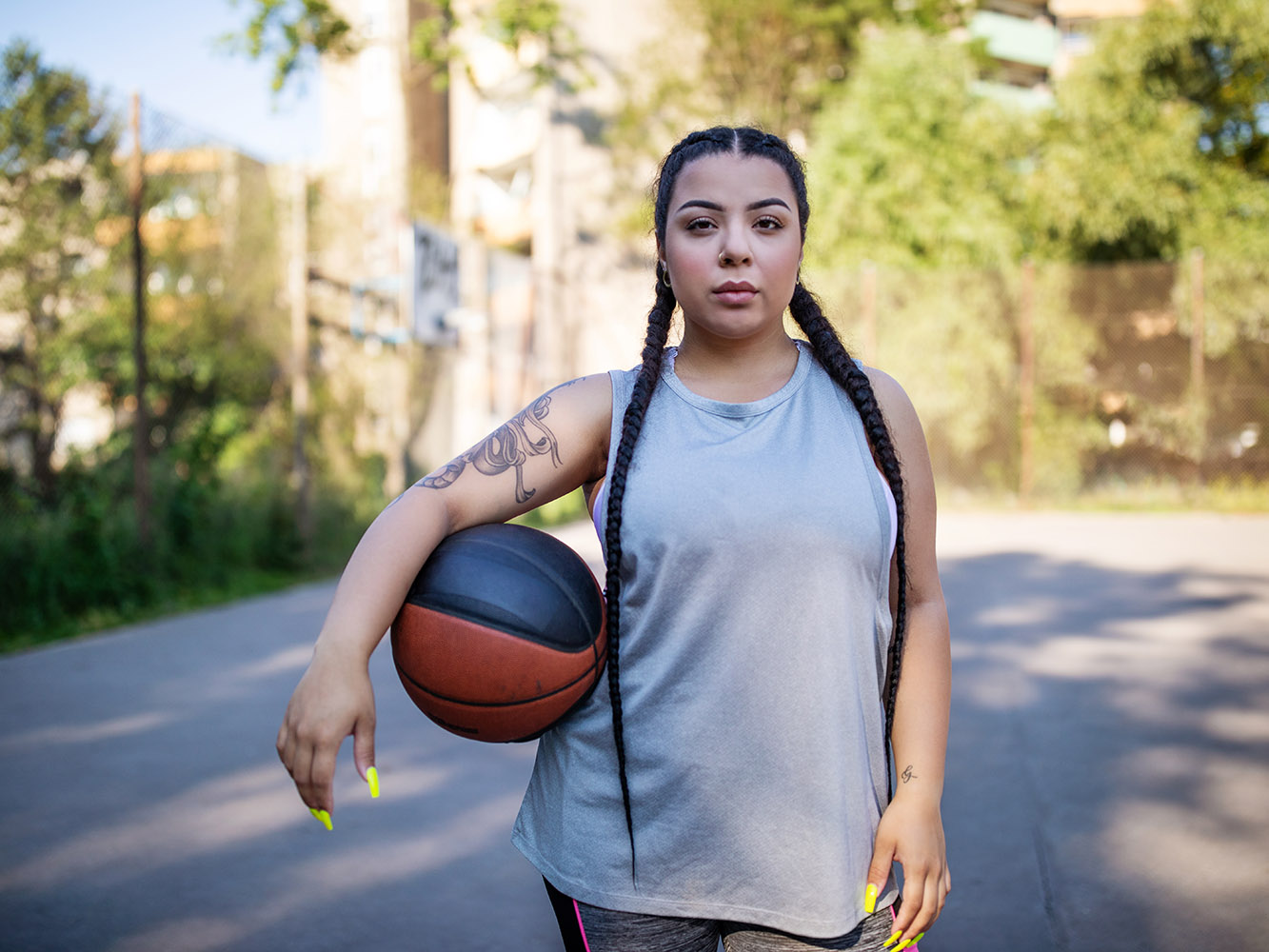
"Go grab a basketball, and find a court! In addition to being a great full-body workout, basketball can be a great way to make some new friends," Baptista says. "Most cities or towns have community courts, so all you need is a ball. If you're not comfortable playing in a group setting or you can't find a game, shooting by yourself is still a great alternative. You can still burn about 300 calories an hour shooting some hoops!"
15. Group Fitness Classes
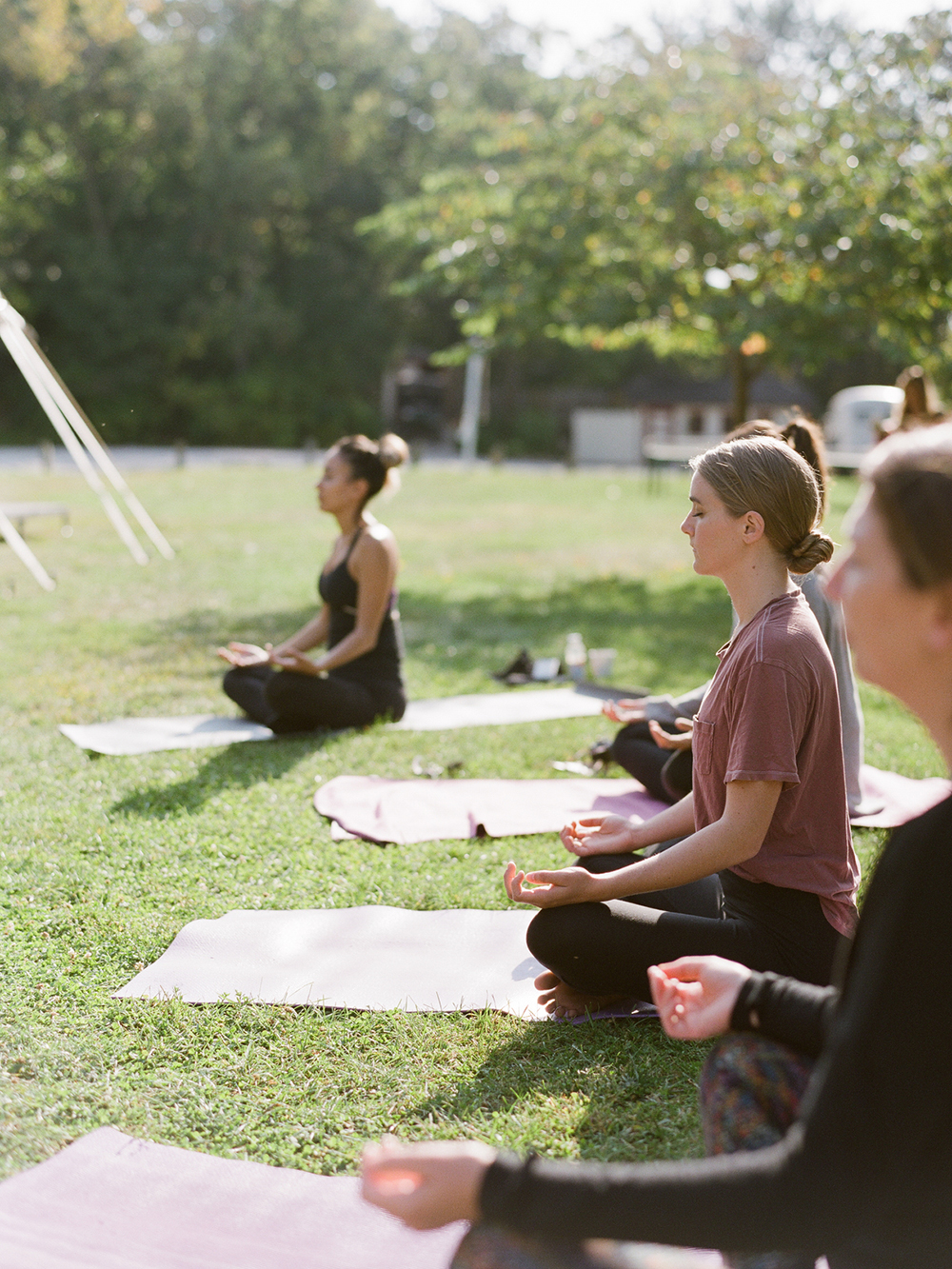
"I have been teaching group fitness for over 11 years. Personally, there is nothing quite like being guided in person with like-minded people around you," Belina explains. "Group fitness outdoors is fun, challenging, and a total mood boost! Look up local group fitness classes near you. You may find yourself immersed in an incredible new community of people, which makes you want to show up more, feel better, and just like the above, improves physical and mental health while kicking diseases to the curb."
16. Streaming Workouts
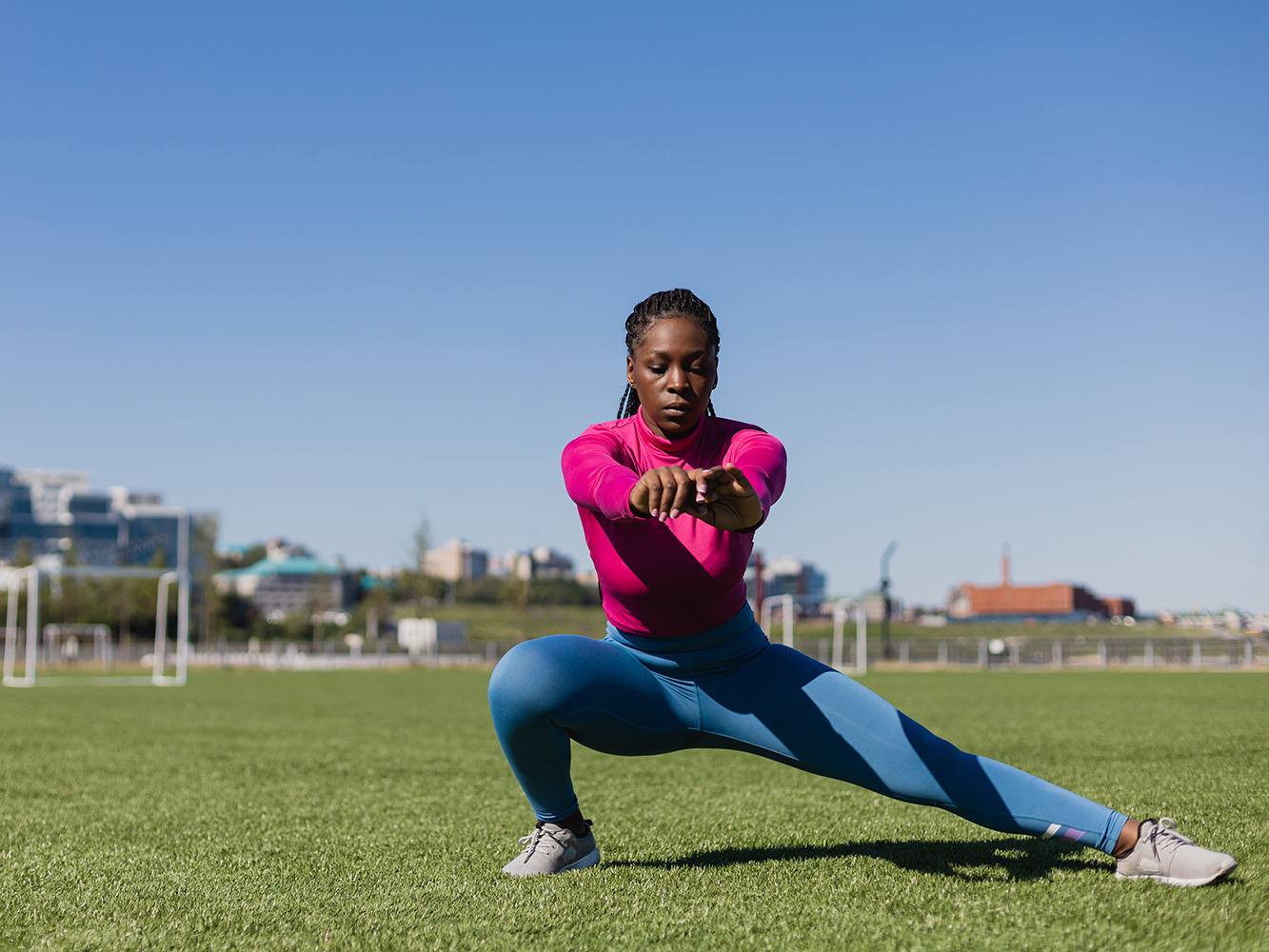
If you normally work out at home through streaming apps, you can also bring them outdoors to change things up. Both Belina and Prokurat recommend trying FitOn and P.volve, respectively, outside by bringing your device (like a phone or tablet) with you.
Next Up: 11 Morning Workouts to Try to Make Your Day Better
Disclaimer
This article is provided for informational purposes only and is not intended to be used in the place of advice of your physician or other medical professionals. You should always consult with your doctor or healthcare provider first with any health-related questions.
Sarah is lifestyle writer and editor with over 10 years of experience covering health and wellness, interior design, food, beauty, and tech. Born and raised in Los Angeles, she attended New York University and lived in New York for 12 years before returning to L.A. in 2019. In addition to her work at Who What Wear, she held editor roles at Apartment Therapy, Real Simple, House Beautiful, Elle Decor, and The Bump (sister site of The Knot). She has a passion for health and wellness, but she especially loves writing about mental health. Her self-care routine consists of five things: a good workout, “me” time on the regular, an intriguing book/podcast/playlist to unwind after a long day, naps, and decorating her home.
-
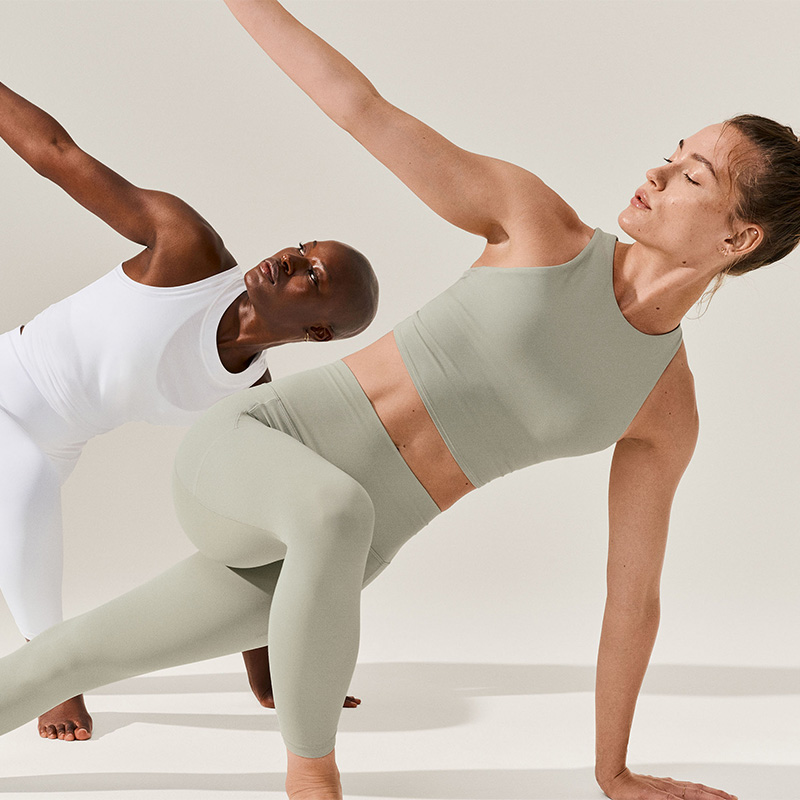 I Live for Yoga and Pilates—These Are the Pieces That Help My Flow
I Live for Yoga and Pilates—These Are the Pieces That Help My FlowTake notes.
By Humaa Hussain
-
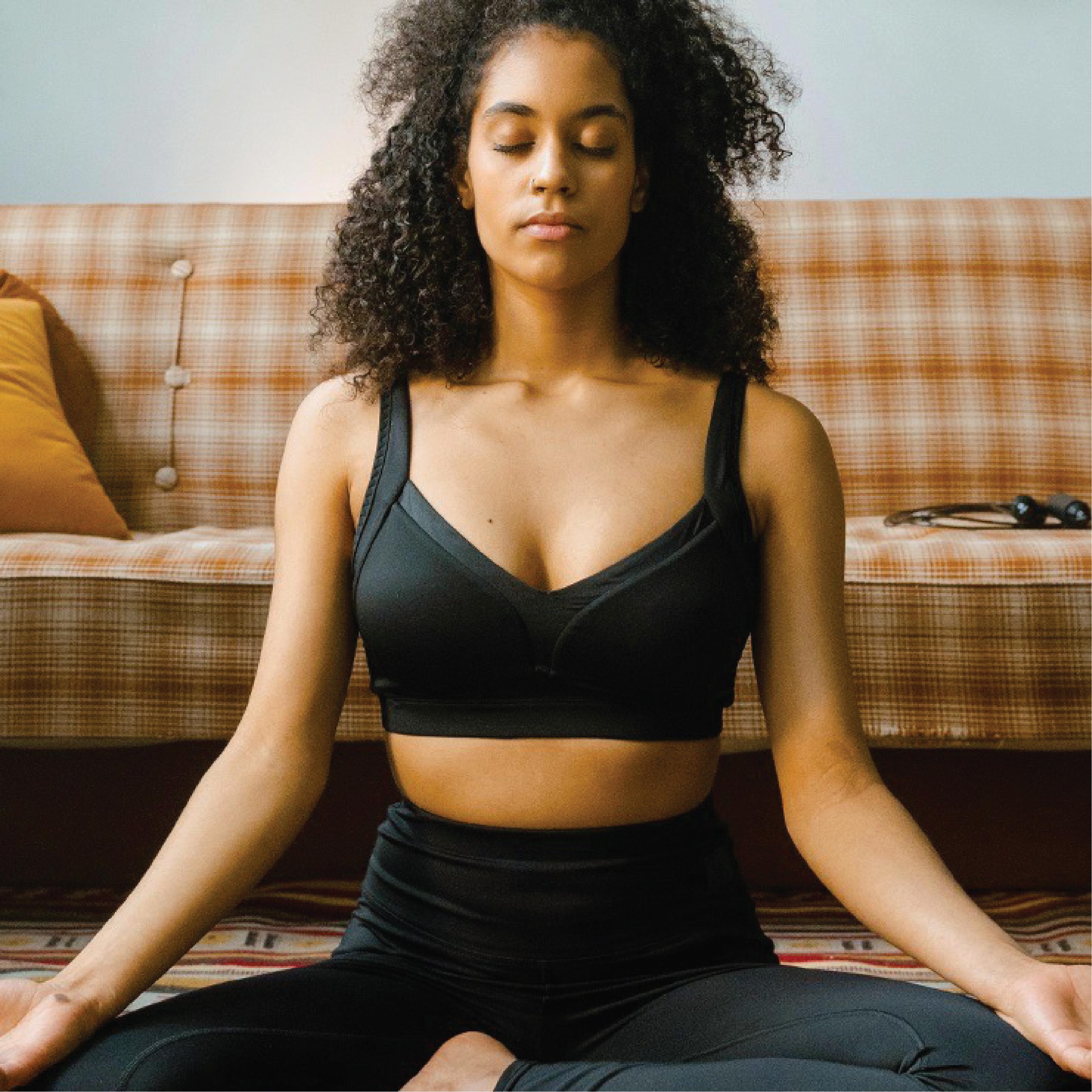 It's Time to Get Our Nutrition in Check for Summer—This App Is Making It Easy
It's Time to Get Our Nutrition in Check for Summer—This App Is Making It EasyThe recipe ideas are endless.
By Who What Wear
-
 If You're Battling With Digestive Issues, This Could Be Why
If You're Battling With Digestive Issues, This Could Be WhyTurns out, you may not have IBS after all.
By Kia Topps
-
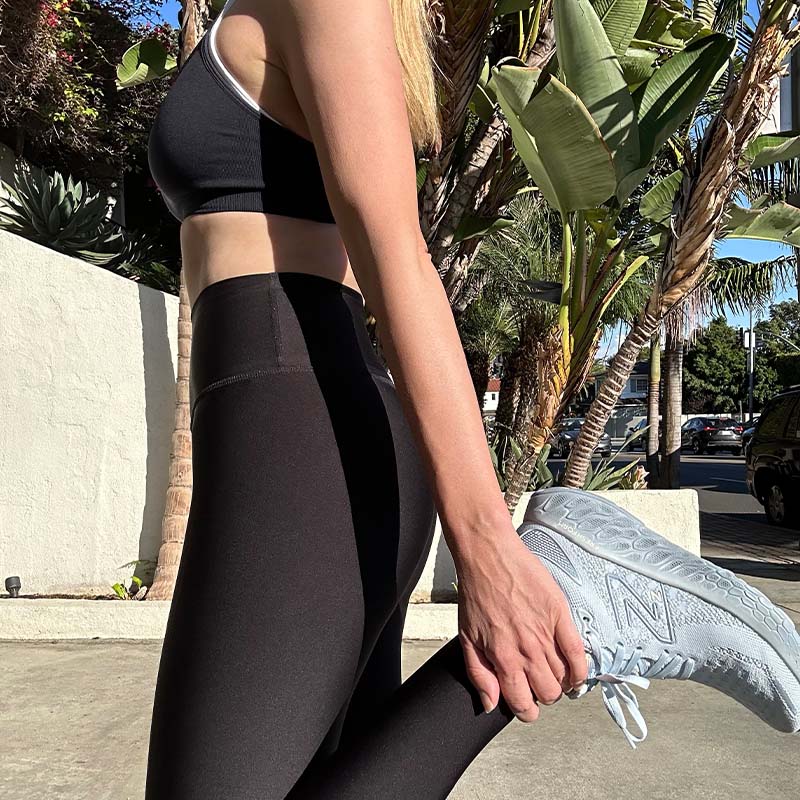 Our Editors Own a Lot of Sneakers, But This Pair Comes in First Place Every Time
Our Editors Own a Lot of Sneakers, But This Pair Comes in First Place Every TimeA major win.
By Aniyah Morinia
-
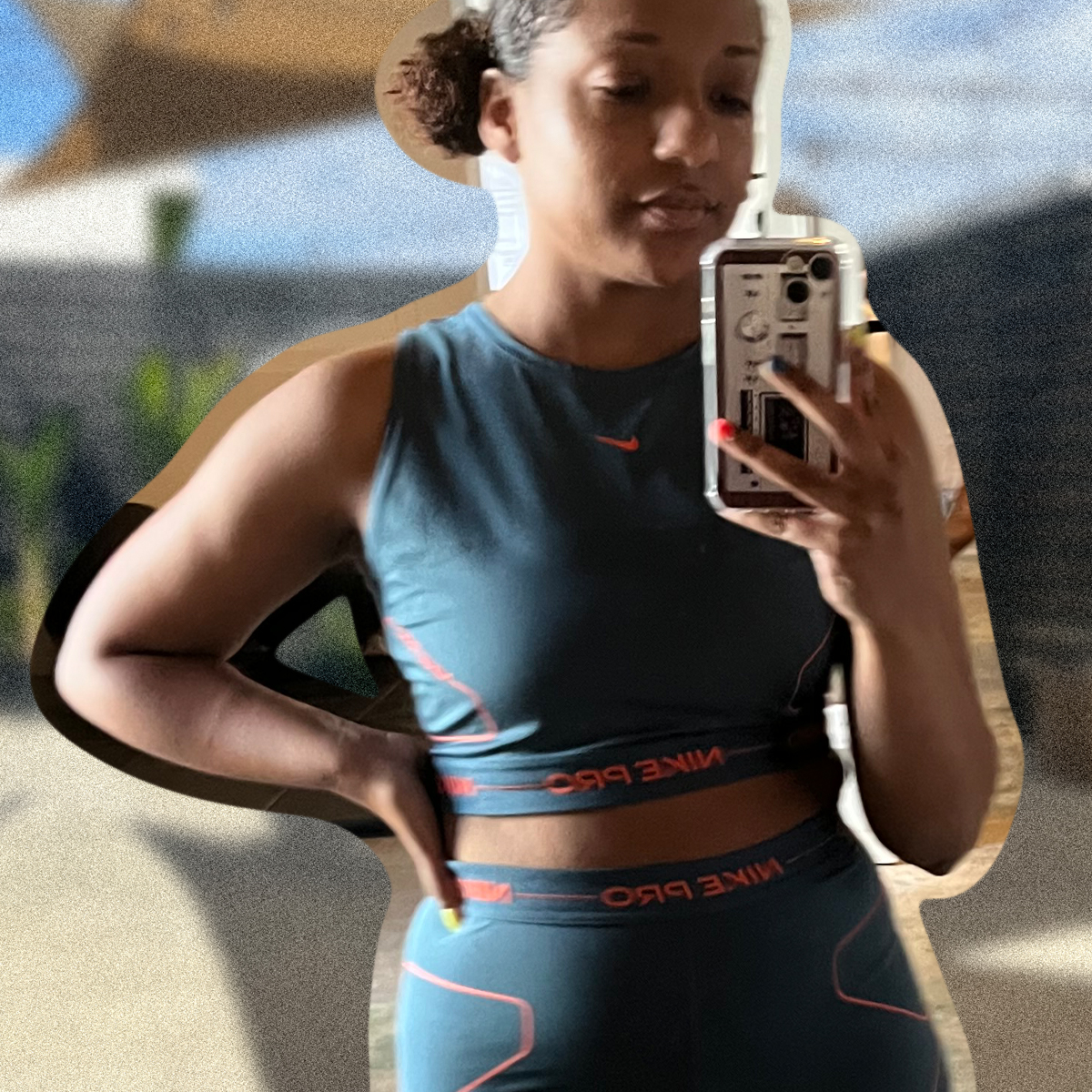 I Changed My Mind About Strength Training When I Tried This Workout
I Changed My Mind About Strength Training When I Tried This WorkoutMy confidence is officially on 10.
By Kia Topps
-
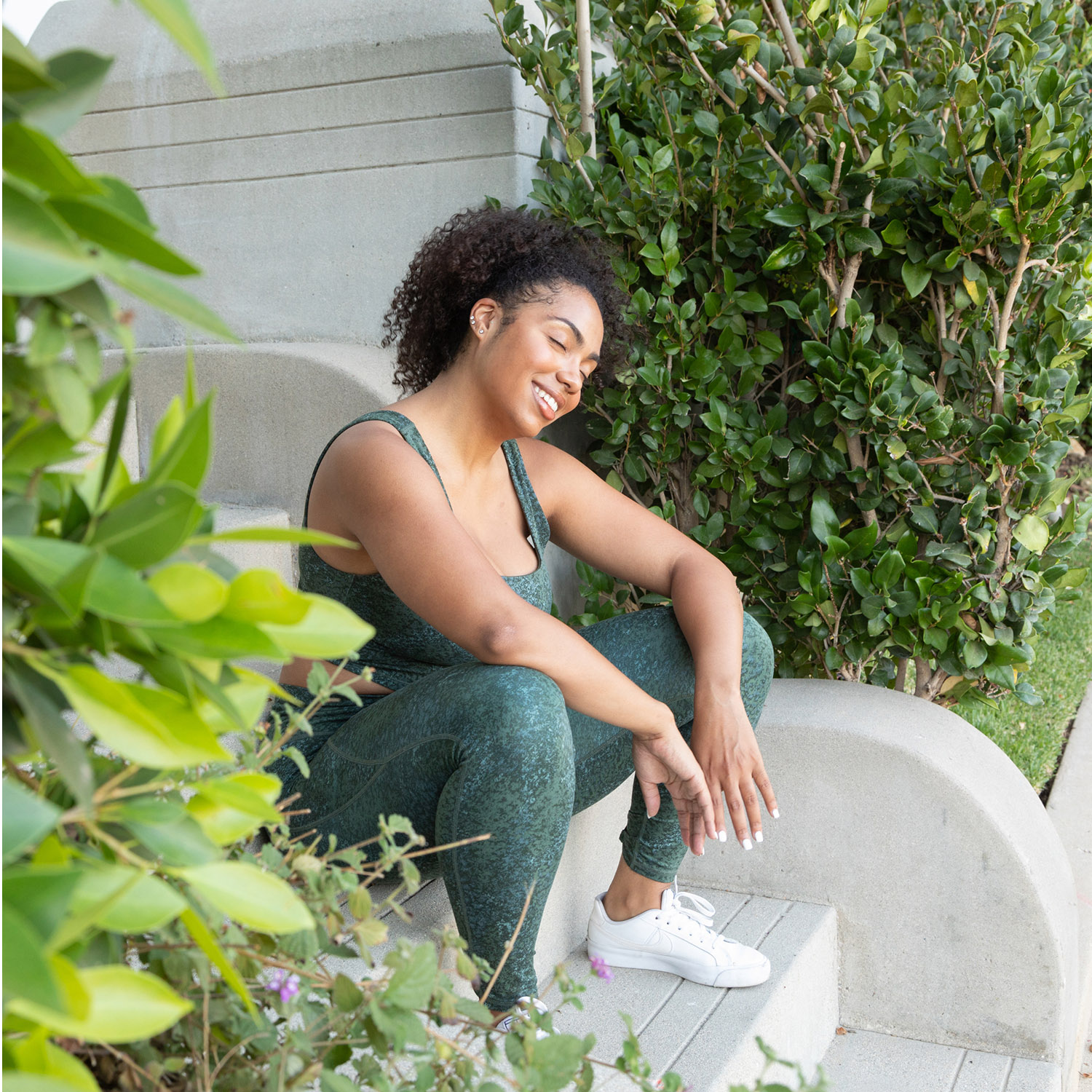 This Type of Gear Will Take Your Workout to the Next Level
This Type of Gear Will Take Your Workout to the Next LevelBring it on.
By Sarah Yang
-
 6 Essential Oils That Will Heal Your Painful Sunburns
6 Essential Oils That Will Heal Your Painful SunburnsAll-natural relief ahead.
By Samantha Parsons
-
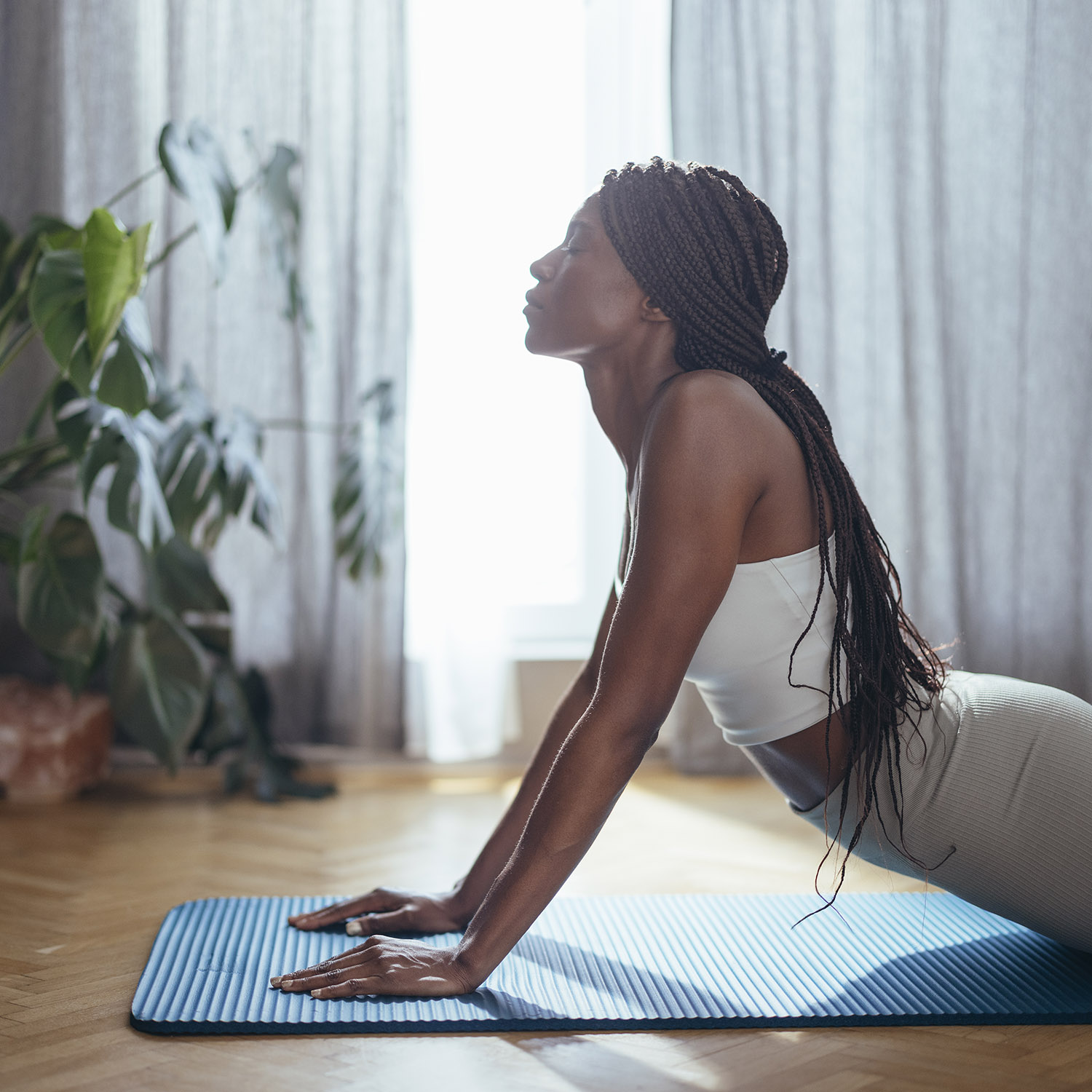 The Activewear Accessory That Can Change Your Yoga Practice
The Activewear Accessory That Can Change Your Yoga PracticeIt's so helpful.
By Sarah Yang
